#but the Long Ring Long Land arc is freaking great too for so many reasons
Explore tagged Tumblr posts
Note
I saw that you mentioned your favorite arc is Skypiea, one of mine is Long Ring Long Land Arc. I can just imagine playing in the games against the Foxy Pirates and Zoro just cheering you on quietly. Or even getting angry when you get hurt. Overall, I think he would be quietly supportive but showing his anger at those who hurt you.
🧜🏼♀️anon
btw ch8 🔥🔥🔥 I literally had to set my phone down so many times because ✨angst and fluff✨ it had me dying ☠️🪦🏴☠️
YES! That is such a good arc too! I honestly think Foxy is such a great “villain” for the Straw Hats and I know 10000% we would all be willing to join the games if that meant getting Chopper back.
I feel like you would just win because Zoro’s just standing off to the side, arms crossed, and just glaring at your opponent causing their feet to cement in place from fear 🤣🤣🤣
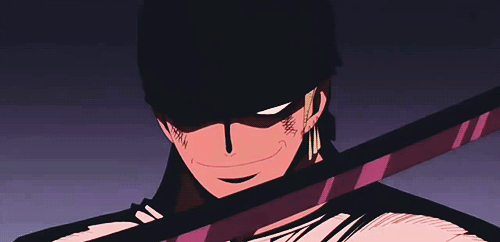
And thank you so much!!! I’m so happy that you enjoyed my craziness with the angst and sprinkle of fluff so it wasn’t an overload. Makes my heart happy 🥰
#🧜🏿♀️ anon#answered#there are just so many good arcs honestly#I think thriller bark is such a fav too because we get Brooks and I absolutely loved that unhinged idiot#but the Long Ring Long Land arc is freaking great too for so many reasons#I really do love foxy as a Straw Hat nemesis#one piece#roronoa zoro#fav arcs
4 notes
·
View notes
Text
Ch. 1: “The Lie of the Land” Analysis Doctor Who S10-8: The Land of Fiction in the Library Metaphor, Trojan Horse & More Star Trek
NOTE:
TPEW = “The Pyramid at the End of the World” TRODM = “The Return of Doctor Mysterio” THORS = “The Husbands of River Song” CAL = Charlotte Abigail Lux, the little girl from the Library
Nightmares Are Real: Don’t Trust What You Think You Know
There are multiple fake outs going on in “The Lie of the Land” beyond what the episode wants us to believe in the canon. Don’t trust what you think you know about it. We really are experiencing things from CAL’s point of view, where CAL, of course, is a mirror for the Doctor/Master. Her real world was a lie and the nightmares were real. Did you catch the Library metaphor?
Furthermore, did you catch the “fiction factory” sign, which is shown below (red arrow)? If you missed it, there are other ways to tell this episode is not what it seems. I’ll show you some examples of how to tell what we think we know to be true is actually a lie. BTW, this is the first time I remember DW actually putting the “fiction” word in print in this way.
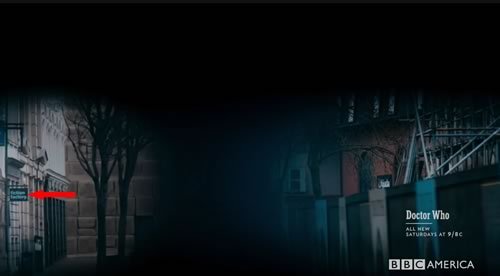
One wrong thing in the image above is the binocular-type vision. Nardole is looking out the window without binoculars, so this image is wrong. It’s just one of many examples of the subtle wrongness in this episode versus the glaring wrongness in the previous one.
Because things don’t necessarily look ridiculous, like in TPEW, DW can lull us into believing what we are told. It’s psychological manipulation, just like what the Doctor, Bill, and Nardole are experiencing.
Don’t fall for it. I’ll show you in a few minutes how this is all connected to a mind-bending, Classic Who story from the 2nd Doctor. It’s the original Library story.
All of this is so cool in a way because Moffat and company are showing us, instead of telling us, so we can experience the difficulties the Doctor and everyone else are having.
However, it’s scary at the same time. For me, psychological horror is the scariest type of horror, so the 10th Doctor episode “Midnight” is the scariest episode: possession and a witch hunt – mob mentality. But that’s what the 12th Doctor’s arc is partially about, as the “Midnight” episode tells us.
Curve Balls for Season 10: Musical Mirrors & Faces
“The Lie of the Land” is one of the most complex episodes ever when it comes to subtext. There are multiple fake outs going on with multiple Doctors and multiple mirrors. Sorting it all out isn’t easy. And there isn’t time enough from week to week to give you more than the most important issues on any of the episodes, let alone get into some extremely complicated issues.
On top of that, we are dealing with the 12th Doctor and the complex issues that come with him.
In fact, back in my Chapter 14 of Fairytales and Romance in Doctor Who, which was my first chapter of my post-airing analysis for “The Return of Doctor Mysterio,” I gave some reasons why the 12th Doctor is the most complicated. Here’s what I said:
Capaldi’s Doctor is the most complicated of them all, and here are some reasons why:
· The 12th Doctor is the culmination of several storylines
· The story is non-linear, especially with the 12th Doctor helping to time lock the Time War before we saw his regeneration. He is playing multiple roles in more challenging ways. I’m including his character in Pompeii, who was actually the Doctor, living as a human.
· 12 o’clock is a time for transformation in many horror stories and fairytales
· The 12th Doctor is going through the Great Work and is changing without regenerations, so it’s harder to see that upon integration with a companion, he has a newborn consciousness.
· He is the composite of multiple integrations with companions in an arc, rather than just an episode.
· He is a three-fold man (3 hidden faces)
· His timeline is going backwards
I forgot to add gender change to the list above when I wrote it.
Now, not only do we have all of this, but also Season 10 is on steroids with complications. I haven’t mentioned this before due to not only the lack of time, but also I wanted to get experience with how Season 10 episodes were constructed to give you the best picture of what is happening.
There are tons of curve balls and fast balls coming at us right from the start in Season 10, which is why in my previous analysis on TPEW, I said don’t start with your own subtext analysis in Season 10. Start with seasons 8 and 9, especially if you are a beginner.
Not only do we have the list of complications above, but also we have multiple versions of not just the Doctor, but also Bill and Nardole. I’ll get to Missy and the fake out with her.
Then, we have overloaded mirrors. For example, Bill is playing the Doctor and all of the companions that I listed back in my analysis on “The Pilot.” Clara represented all the companions too, as “The Name of the Doctor” shows us.
However, Bill is different in that one minute she can be the Doctor, the next River, the next after that Ace, and then Donna, etc. Nardole is the same way, and so is the Doctor. Everyone is playing someone you might not expect, unless you read the subtext clues.
This is so different from what has come before. Therefore, Season 10 is a test of our subtext-reading skills. Many of the normal subtext cues, for the most part, aren’t there. Instead, they are replaced with other metaphors that have been mentioned previously, but not or rarely used. Or there are new metaphors to understand, like the Eye of Harmony on the Doctor’s desk. Or there are references to other episodes that require knowledge of those to figure out who is playing whom.
It’s musical mirrors and faces. I’ll give you some examples in a bit.
BTW, I call someone a face of the Doctor when they have been defined as a Doctor in the subtext. These people aren’t just mirrors, who have some similar characteristics. As an example, Erica from TPEW was assigned 2 numbers, representing Doctors 29 and 30, but also as reinforcement she is associated with the Greek Cross. In another example, Bill has numbers assigned to her that can change, just like any Doctor. Clara, River, Amy, Rory, and Wilfred (Donna’s grandfather) for example, all have had numbers assigned to them.
Moffat and company intentionally want to make reading subtext extremely difficult for Season 10, so the surprises aren’t spoiled. Additionally, with Capaldi leaving, that’s just crunching everything further into really cryptic episodes. There’s a lot of story left to tell, so I imagine that we will get a big data dump in the next 4 episodes before the Christmas special.
I mentioned fastballs. I feel like I’m a batter at the plate being thrown both curve balls and fastballs and I have to try to keep up. Normally, things don’t happen this quickly in the subtext like they are. A great deal of patience is usually required to see things play out and pay off, like over months and years. But this rapid pace of the subtext is just another complication of the 12th Doctor because he is the focus of the very long DW story. Things transform when the clock strikes 12.
How This Affects My Thinking
You may recognize the term “mind palace” from Sherlock. If you don’t watch the series, Sherlock Holmes, when he thinks deeply, goes into his mind palace mode to think. When he does this, the show projects his thoughts in mid air. He is deeply concentrating and has to have no other distractions. It’s pretty cool because you can watch him recognizing patterns, rearranging thoughts by using his hands, connecting the dots, shoving some ideas away with his hands, etc. Of course, it’s all in his mind.
That analogy is very similar to what I do.
If I weren’t writing these analyses, I would be deeply pondering some things against what I already know. It’s like I run simulations in my head of various situations and how they play out. It’s hard to explain, but this is an analogy of how I deeply contemplate the subtext ideas within my mind. I run through all my relevant hypotheses, conclusions, and things that are just ideas, which I haven’t made any hypotheses about them yet. I test things, shoving some ideas out while refining others. Then, I go back to re-watch whatever episodes are necessary to test any hypotheses, new ideas, etc. to see how they hold up. It’s a very iterative process, so I do that over and over.
However, writing these analyses takes up all my spare time, and I have limited time to explain the main points, as it is, in ways that hopefully are understandable. That takes a bit of planning. By going through the exercise of writing all of this out for you, I now realize that I think about the really deep stuff on a totally different level than I do with these analyses. And since I want to get at least some sleep and not have my brain explode trying to do both levels, I have no time to ponder some big questions. I would be re-watching some previous episodes, too, to check out a few things.
Dreams Quandary, the 2-Year-Old Simulation Idea & the Game
A couple of years ago, I was in a quandary about how DW was going pull off all the dreaming. My daughter and I had numerous discussions about the problems of having the Doctor in dreams the whole time. Missy’s statement about Clara from the Season 8 episode “Death in Heaven” got me thinking.
MISSY: Cos she's perfect, innit? The control freak and the man who should never be controlled. You'd go to hell if she asked. And she would. The phone's ringing, Doctor. Can you hear that? Now that is the sound of your chain being yanked. Heel, Doctor! (as Clara) Help me, Doctor. Help me. Help me, Doctor.
How would you control a man who should never be controlled? You keep him unaware of his situation in an altered reality. However, the altered reality can’t be all dreams, as in normal dreaming. It can’t be something that doesn’t count in the end. The Doctor has to be learning all along. Otherwise, it would cheapen the whole experience.
I came up with an idea back then that I want to throw out to you. I don’t know if this is the case. Well, part of it just became canon this season, but it’s the rest of it that may or may not be correct.
After “Death in Heaven,” I came up with the idea of that the Doctor was in a simulation, which has now become canon, but that’s not all. The simulation keeps him in an altered reality while he tries to learn how not to blow up the universe. It’s like a flight simulator game, where you learn how not to crash a plane. He’s being tested through a game. Sure, we’ve seen the Test of Shadows, but my thoughts went way beyond that. This test could be the endpoint of his journey, or it could be one of the nested altered realities.
Is this the case? This is one of the big questions I would run through my deep mental analysis, given all the new Season 10 information, if I weren’t writing these analyses.
The idea of this being a game comes up in multiple places, including the latest in “Extremis,” and it goes all the way back to a very important 2nd Doctor episode.
“Extremis”
DOCTOR: Goodbye to the truth? I came a long way to read that book! Two thousand years at the last count. If you don't want me to read it, you could have stopped me any time you wanted. Why the play acting? This is not a game. (The figure opens its mouth, and a voice is heard. This might not mean anything to you, but the voice is provided by Tim Bentinck, 12th Earl of Portland, better known to millions as David Archer...) MONK: This is a game.
Later, the Doctor talks about a game with Bill:
BILL: The numbers. I said them, too.
DOCTOR: I know. So did I. The trouble is, when simulants develop enough independent intelligence to realise what they are, there's a risk they'll rebel. Those deaths, they weren't suicide. Those were people escaping. It's like, er, Super Mario figuring out what's going on, deleting himself from the game because he's sick of dying.
“The Long Game,” “Bad Wolf,” & “Parting of the Ways”
The Game Station on Satellite Five plays a huge role in three 9th Doctor episodes, “The Long Game,” “Bad Wolf,” and “Parting of the Ways.”
Here’s what the TARDIS Wikia says about Satellite Five:
Satellite Five was a space station in Earth orbit circa the year 199,909. It was a hallmark of the Fourth Great and Bountiful Human Empire, though the reputation that was built up about the satellite across time and space was not what it appeared to be. Satellite Five was deliberately framed in eyes of the public as an innocent technological vestige of humanity to turn their attention away from the ideas it could be subject to corruption, which let its controllers secretly manipulate Earth into a subservient dictatorship. It served as the centre of two major conflicts that threatened the welfare of the planet below, while the residents of Earth were never made aware of the truths behind the facade.
This sounds suspiciously like what is happening with the Monks. Except the Daleks are behind the Game Station. Here we are back at the idea that Daleks are involved. We looked at that in multiple chapters in Fairytales and Romance in Doctor Who.
However, check out something in “The Lie of the Land.” There is a Greek Cross on the wall (red arrow) in the image with the Daleks being blown up by the Monks. Once again, the subtext is saying the Doctor’s body is a Dalek, which is what “Into the Dalek” subtext says. When we examined this, I asked the question is it literal or metaphorical, like the blindness? There’s also a sign on the back wall (white arrow) that is shaped like an “Into the Dalek” sign, although it’s not the Aristotle, the ship the episode took place on.
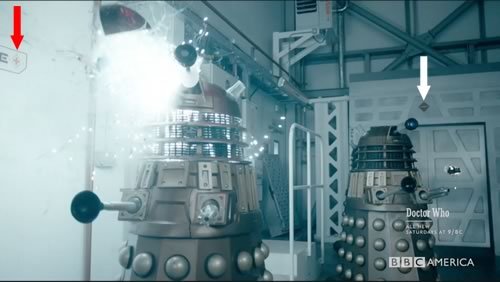
Heather in “The Pilot” looked like a Dalek at one point, and she is a mirror of the Doctor, which we examined.
“War Games”
“War Games” is the last 2nd Doctor episode and my favorite 2nd Doctor episode, although I haven’t seen very many of his. We see people in various wars, like the American Civil War and WWI. Different time zones are overseen by the War Lords, who kidnap large numbers of human soldiers in order to create an army to conquer the galaxy. The War Chief is a Time Lord, as the Doctor at the end discovers. The Time Lords accuse the Doctor of breaking their laws of non-interference, and he gets punished – sentenced to regenerate and live on Earth without a working TARDIS, which is similar to where he starts with Season 10.
The opening of “The Magician’s Apprentice,” where we see young Davros, opens on Skaro with technology from different time periods. It’s most likely a reference to “War Games.”
The Monks’ and Doctor’s Simulations
Both the Doctor and the Monks are running simulations to test each other.
Back in “Extremis,” the Doctor was talking to Bill about the Veritas’ Test of Shadows:
DOCTOR: Yes. Let's bring the story up to date, Bill. Imagine an alien life form of immense power and sophistication, and it wants to conquer the Earth. So it runs a simulation. A holographic simulation of all of Earth's history and every person alive on the surface. A practice Earth, to assess the abilities of the resident population. Especially the ones smart enough to realise that they are just simulants inside a great big computer game.
There’s testing going on to assess abilities, and the Doctor mentions a game, again.
In TPEW, the Doctor tells Bill:
DOCTOR: Funny thing, fear, isn't it? Once it rules you, you're even afraid to admit what's scaring you. For the record, I, for one, fully understand my weakness.
Later, he tells her:
DOCTOR: Well, every trap you walk into is a chance to learn about your enemies. Impossible to set a trap without making a self-portrait of your own weaknesses.
The Doctor has been running his own simulations.
All 3 Monk episodes “Extremis,” TPEW, and “The Lie of the Land” contain simulations and the Library metaphor, so we are back in the Library even if it doesn’t look like it.
The Library Has a Huge Presence
We’ve examined in numerous chapters how this is all about the Library since the subtext always ends up leading back to it, along with leading back to the Romans and even to the Vikings. The Library shows up in multiple ways in this episode, one of which is much easier to spot than the others.
In ��Silence in the Library” and “Forest of the Dead,” we saw CAL in 3 different Library settings. The first setting was the part the Doctor, River, and Donna were in at the beginning. CAL thought of herself as a girl, but from the 10th Doctor and Donna’s perspective, CAL really was a security camera, floating in the air.
The second setting that we saw her in was as a girl in her dreams at home with her dad and Doctor Moon. The third setting showed CAL and her actualized face as part of the control node of the computer. In effect, she was a cyborg. Therefore, we can expect to see multiple settings with the Doctor and friends.
Before we get to the 3 very important Library metaphors in “The Lie of the Land,” I want to show you how all of this is related to the Classic Who story “The Mind Robbers.”
The Library Metaphor in “The Mind Robber” & the Land of Fiction
“The Mind Robber,” a 2nd Doctor episode, is one of the shocking surprises I got last September or early October timeframe in 2016 when I went back to watch some Classic Who to find out if it all connected to nuWho.
The Library Metaphor, CAL, and so much that has been happening is based on this episode, where we see the Land of Fiction. It’s a different type of mind-bending story that goes right along with the fiction factory sign in “The Lie of the Land,” Medusa, and what is happening to the 12th Doctor and company.
This 2nd Doctor episode is a great example of how we can go back to any episode in DW and see how it connects to the very long story from DW’s start in 1963.
The TARDIS Wikia says
To escape from the volcanic eruption on Dulkis, the Second Doctor uses an emergency unit. It moves the TARDIS out of normal time and space. The travellers find themselves in an endless void where they are menaced by white robots.
Having regained the safety of the TARDIS, they believe they have escaped — until the ship explodes. They find themselves in a land of fiction, where they are hunted by life-size clockwork soldiers and encounter characters like Rapunzel, the Karkus, and Swift's Lemuel Gulliver.
This domain is presided over by a man known only as the Master — a prolific English writer from 1926 — who in turn is controlled by a Master Brain computer. The Master is desperate to escape and wants the Doctor to take his place, while the Master Brain plans to take over the Earth.
The Doctor engages the Master in a battle of wills using fictional characters. Zoe and Jamie overload the Master Brain. In the confusion, the White Robots destroy the computer, freeing the Master.
Oddly, the person called the Master in this episode is not considered the Master, who, 2 seasons later in 1971, was portrayed by Roger Delgado, the person considered to be the 1st Master.
As far as I know, because I haven’t watched all the Classic Who episodes before it, this episode is the original Library metaphor episode. Both the Doctor and Master have been kidnapped although many years apart. The Master is hooked up to the computer (the Master Brain) in the Library, and he wants to get free. Both the Master and the computer, who rules the Master, want the Doctor to take the Master’s place.
The Doctor and his 2 companions, Zoe and Jamie, find a world of giant word puzzles, and fictional people, along with a bunch of children. They end up going through a maze containing the Minotaur, another reference to “The God Complex” and Icarus that we’ve looked at multiple times. They find the Master, but end up behind glass.
Check out this dialogue and the familiar imagery:
JAMIE: It's hard to see anything. DOCTOR: Where are you?
MASTER: Here, patiently waiting. (A door of hexagonal glass panels opens and Zoe, Jamie and the Doctor enter. A White Robot stands guard. The Master seats at his console, and now we see his face we can also see a large glass globe with filaments spinning behind him. The Master is an elderly bearded gentleman in velvet jacket and skull cap, wearing half-moon reading glasses. The skull cap has wires connecting it to the globe.)
Here are the hexagons on the glass doors, denoting that the Doctor on the right along with Jamie and Zoe are prisoners. You can see the symbology was set up long ago, so you can go back to the beginning and use the information I’ve been giving you to read the subtext.

MASTER: Oh Doctor, this is a great pleasure. And your two young companions. Now let me see. Oh yes, yes, yes. Zoe and Jamie. I have your dossiers here in front of me. ZOE: You appear to be very well organised. MASTER: Oh yes, indeed. We have to be. The running of this place requires enormous attention to detail. It's a responsible position, but very rewarding. DOCTOR: Responsible, huh? To someone else? MASTER: Not to someone. Another power. Higher than you could begin to imagine. Oh, I must congratulate you on the great skill in which you tackled the various stages of your examination.
Who or what is this Master Brain computer? I’m betting we are going to find out the corresponding Master Brain in Season 10. Is the Master Brain the Monk in the chair in “The Lie of the Land”? There are 12 Monks, relating to the 12th Doctor.
DOCTOR: What is the purpose of all these tests?
Here’s a reference to tests. This doesn’t sound like what I envisioned 2 years ago, though.
MASTER: Well, do you know, when I was first brought here myself, I was as bewildered as you are. JAMIE: Well, how long have you been here? MASTER: I left England in the summer of nineteen twenty-six. It was a very hot day, I remember. I think I must have dozed off over my desk, and when I awoke. Oh, but that' a long story. Did you ever hear of the Adventures of Captain Jack Harkaway? (written by Frank Richards, a pseudonym of Charles Harold St. John Hamilton.)
Not only do we see clockwork soldiers in this story, like we’ve seen in nuWho, but also the year 1926 comes up again, which we looked at in my TPEW analysis. I totally forgot about this story referring to 1926. I knew it came up somewhere else but couldn’t remember which one.
As we saw in TPEW, this not only ties back into the 3rd Doctor story “Carnival of Monsters” with the miniscope and manipulation of emotions, but also it ties back into the 1926 novella by the Austrian writer Arthur Schnitzler book, is called Rhapsody: A Dream Novel, also known as Dream Story. And Amy Pond ties into that, as well.
My hypothesis is that 1926 keeps coming up because the date was originally taken from the publication of the novella.
DOCTOR: No, I can't say that I. Wait a minute, a serial in a boys' magazine? MASTER: The Ensign. DOCTOR: The Ensign. MASTER: And for twenty five years, I delivered five thousand words every week.
1926 + 25 years = 1951 not 1968 when this story of DW was broadcast. Of course, we could be back in time. However, some things, along with the wrong date, are telling us that we can’t trust what we are seeing. It didn’t quite happen this way. Besides, this is an outline episode. As you can see, nuWho is greatly expanding on this.
DOCTOR: You are a writer. ZOE: Twenty-five years, five thousand words a week. Well, that's well over half a million words. MASTER: Yes, yes. It was probably some kind of record. Anyway, that was why I was selected to work here.
The whole writer concept is so interesting. This comes back to the Doctor being Shakespeare, River writing as Melody Malone, and Amy writing as Amelia Williams. Interestingly, we have our 3 faces of the Doctor. The Doctor is making Bill write, too. She also is a face of the Doctor.
JAMIE: And you're the one that's in charge of all of this? MASTER: In one sense, yes. DOCTOR: Or is all this in charge of you? MASTER: My brain is the source of the creative power which keeps this operation going. DOCTOR: I see. That means that you are virtually a prisoner. MASTER: Oh, no. No, no, no. (The globe glows.)
The Master is lying about being a prisoner. He’s hooked up to the computer, and for whatever reason, he can’t unhook the electrodes, like the Doctor does later. This is another example of why we can’t trust what we see.
MASTER: You, you, you must excuse me for a moment. (The Master writes in a large book. We see Resistance is Useless underlined at the top of the page, then Submit your will for the...) JAMIE: Come on, Doctor, let's get out of here. ZOE: Yes, let's. It gives me the creeps. DOCTOR: No, I need to find out more. JAMIE: Well, look, you keep him talking, and Zoe and me will find another way out. DOCTOR: Jamie, I think it will be safer if we all stick together. (The globe stops glowing and the Master stops writing.) MASTER: Oh, I'm so sorry to have kept you waiting. Now, where were we? DOCTOR: You were about to answer my question. Are you a prisoner here? MASTER: Well, no. No, I wouldn't say that. In fact, I rather like being here. I have everything I could possibly want.
We know this isn’t true since he wants to leave.
(Jamie and Zoe sneak round the back of the globe.) MASTER: This vast library with all the known works of fiction. All the masterpieces written by Earthmen since the beginning of time.
[Library]
(Jamie and Zoe enter a room full of bookcases.) ZOE: I don't think he noticed. JAMIE: No. Let's try down there.
[Control room]
DOCTOR: I see, yes. And only an Earthman type creature has the power to create fiction. The power to imagine. MASTER: Exactly. This is one field in which the intelligence I serve cannot compete. They need man, a man of boundless imagination, as a powerhouse. A lifeline, as you might say. DOCTOR: What is this intelligence you serve, and why was I brought me here? MASTER: Well, as you see, I'm no longer young, where as you, Doctor, are ageless. You exist outside the barriers of time and space.
Needing children for their creative minds is a theme. We saw that in the 10th Doctor episode “School Reunion,” where Sarah Jane shows up in the school with Rose undercover as the dinner lady serving chips. Children are under some kind of alien control, at times, sitting in front of computers.
DOCTOR: And you want me to MASTER: To take over this unique situation. To take my place. DOCTOR: I refuse! (The globe glows and takes over the Master.) MASTER: Refusal is impossible. You are here to serve us. There is no alternative.
The Doctor has no choice, but he never takes the Master’s place. Both are hooked up to the computer.
Master Makes the Doctor a Villain
This 2nd Doctor episode is so similar to what we saw with River’s book, written under the pseudonym Melody Malone, in “The Angels Take Manhattan.” River’s fiction comes alive. When Amy starts reading the passage about Rory with coffee getting snatched, we see it happen. River, too, had to break her wrist to get away from the Weeping Angel because Amy read it in a book. River is mirroring the Master.
Check this out from “The Mind Robber.” The Master is writing something out that is similar to what we’ve heard from the Great Intelligence.
[Control room]
(The Master reads what he has just written.) MASTER: Jamie and Zoe realised at last that the Doctor was in fact the most monstrous and cunning villain. There was no punishment too severe for the crimes that he had committed. (Jamie and Zoe enter with two White Robots.) MASTER: Splendid. Splendid. Come closer, my children. JAMIE: You sent for us, Master? MASTER: Now you know what your friend the Doctor is really like, don't you. ZOE: He is the most monstrous and cunning villain. JAMIE: No punishment is too severe for the crimes he has committed. MASTER: Word perfect. That is why I have sent for you both at this moment of crisis. We need your help. ZOE: Tell us what we must do. MASTER: Well
This seems to go along with the scene in “Extremis” with Missy’s execution. I’ll show you the problem I have with that scene.
The Doctor Becomes Part of the Computer
When the 2nd Doctor becomes part of the computer, check out how similar the goals are of taking over Earth is to what happens in “The Lie of the Land.”
[Control room]
MASTER: The children obeyed perfectly. Their mission is completed. (The Doctor is in a transparent panel with a device over his head, with similar features to the robot's chest panels.) MASTER: And now perhaps we can get down to business. As you refused to take over my post at the controls, we have been forced to incorporate you into the computer itself. DOCTOR: To what purpose? MASTER: To bring the whole planet Earth under our control.
Controlling the Doctor controls planet Earth, just like in “The Lie of the Land.”
DOCTOR: And it's people? MASTER: We have no wish to destroy them. Merely adjust their minds to suit our purpose.
Wow, this adjustment of minds, a.k.a. brainwashing, is very similar to “The Lie of the Land,” as well Doctor Moon’s brainwashing in “Silence in the Library” and “Forest of the Dead”!
DOCTOR: Sausages. Man will just become like a string of sausages, all the same. MASTER: Man will simply vanish from the Earth and reappear here.
Unless there is some type of teleporter or extraordinary superpowers, simply vanishing from Earth and reappearing in this Land of Fiction suggests that this is all part of a computer network.
DOCTOR: Leaving the Earth undamaged and uninhabited for you to take over.
Earth, of course, can be the Doctor. I liken it to CAL emptying her mind of living minds.
MASTER: Precisely. DOCTOR: If I cooperate. MASTER: You have no alternative. You are part of the Master Brain. DOCTOR: So the computer feeds off my thoughts, does it? MASTER: Correct. DOCTOR: Then it will create what I think. MASTER: Oh, no. No, no, no, no. You're now under the control of the Master Brain. DOCTOR: Are you so sure? You couldn't control my mind before, and you certainly can't control it now. MASTER: Submit! DOCTOR: No! You've given me equal power. It's now a battle of wits between me and you. (The Doctor concentrates hard.) MASTER: Oh, no. No, no! Stop! Stop! DOCTOR: Jamie, Zoe, can you hear me? Think for yourselves. Don't be afraid. You can open the book. Go on, you can do it. MASTER: Oh, oh dear. This is against everything we ever worked for. Warning! Warning! Emergency Action. Emergency! Emergency! DOCTOR: Don't worry about fiction. Hang on to real life. You've got to get out. MASTER: Calling White Robots. Guards will enter the control centre. The Master Brain must be protected.
This battle of wits between the Master and Doctor is very similar to the battle of wits between Morbius and the 4th Doctor in “The Brain of Morbius.” In a few minutes, we’ll look more at how Morbius is playing a part of Season 10.
Thoughts Coming to Life, Like Medusa
In “The Mind Robber,” it’s people’s thoughts that can bring characters to life. Also, it’s people’s beliefs that sustain fictional elements that can be deadly. For example, Medusa is a statue that comes to life. She can turn people to stone if they look at her. The Doctor and Zoe end up looking at a mirror showing Medusa’s reflection, which isn’t real, so can’t kill. There is an original Star Trek episode from 1966 called “Shore Leave,” where thoughts can come to life and can seemingly kill.
Here’s an example of how the Doctor and Master are mentally dueling. The Master conjures Cyrano de Bergerac (shown below on the right) while the Doctor creates d'Artagnan, who has a Greek Cross (red arrow), showing he represents a Doctor.

[Battlements]
MASTER [OC]: The famous Cyrano de Bergerac. Remorselessly, Cyrano advanced on those that had dared poke fun at his nose.
[Control room]
DOCTOR: But wait.
[Battlements]
DOCTOR [OC]: He found himself face to face with the fearless musketeer and fearless swordsman D'Artagnan. (The swordfight begins, with stirring background music. They are evenly matched.)
Things escalate. For example, the Master changes Cyrano into Blackbeard with a cutlass, and the Doctor changes d'Artagnan into Sir Lancelot in full armor on a horse. This concept of escalation of weaponry is extremely important. We’ve examined it before. It also comes up in “The Lie of the Land.” We’ll look at it below in relation to “The Lie of the Land.”
1st Doctor
Interestingly, I saw thoughts coming to life all the way back in the 1st Doctor episodes. It was absolutely fascinating to watch the idea of elements being introduced in one episode, only to have them manifest in some real-world way in future episodes.
The 12th Doctor Shows Up in “The Mind Robber”
In “The Mind Robber,” as in many Classic Who episodes, the 12th Doctor shows up, but he is a robot or a bunch of robots. Here is an image below from “The Mind Robber,” where the robots have 12 slots (red arrows) on the backs of their heads in 2 pairs of sixes, suggesting he’s a prisoner. It also suggests there could be 2 of him. This was shocking, too, the first time I went back to Classic Who and saw this over and over. However, it totally meshes with the concepts that we’ve examined both prior to and in Season 10.

For example, in my “Smile” analysis, we saw the Doctor mirroring the Emojibot. We also examined how Rory mirrored Rorybot, who was a sentient robot, in “The Girl Who Waited.” Then, in my “Oxygen” analysis, we saw how the Doctor mirrored the zombie in the spacesuit as well as the suit, itself.
Furthermore, going back to the very first 12th Doctor episode “Deep Breath”, we examined in Chapter 14 of Fairytales and Romance in Doctor Who, the first chapter of the post-airing analysis of “The Return of Doctor Mysterio,” how the Doctor was a mirror of the half-faced man. A cyborg.
While we haven’t examined this before because I wrote about it in my chapter on Religious metaphors, which I have yet to post, the sheriff in “Robot of Sherwood” is also the 12th Doctor. In fact, the 12th Doctor turns up as a robot, cyborg, or Dalek in many nuWho episodes, as well. The sheriff is being controlled because he is connected to gold, which is a big part of TRODM and the insectoid in the big “C” room. We examined that in Chapter 9 of Fairytales and Romance in Doctor Who.
Just about all of the subtext throughout DW shows the 12th Doctor is part of some type of computer.
In “The Mind Robber,” the robots are under the control of both the Master and the Master Brain.
Forests Show Up in the Library Metaphor
Forests show up in a lot of episodes, as part of a theme. However, I’ll only mention a few for lack of time. But keep in mind that there are some others, which are significant to the current story, like the 11th Doctor ghost story “Hide.”
“The Mind Robber”
In this story, forests show up in a couple of ways. There is a pseudo forest of cut timbers, which are made to look like a forest. Also, there is what the story calls a forest of words.
“Silence in the Library” & “Forest of the Dead”
Comparing this to nuWho, we have “Silence in the Library” and “Forest of the Dead” where the numerous books in the Library are the dead forest turned into books. That’s not all, though. In CAL’s dream part, we see forests on the curtains. In the image below, check out the trees on the curtains (red arrow) behind Doctor Moon.

In fact, Doctor Moon is part of CAL. Below is Doctor Moon’s briefcase labeled with CAL. Therefore, he is a face of CAL. He is the virus checker.

Therefore, it’s not surprising that CAL is also associated with the forest on the curtains, as shown below.

“The Lie of the Land”
There are forests in “The Lie of the Land,” too. In the Vault, there is a forest (yellow arrow) behind Missy when she is on the piano.

Not only that, but there is a forest behind the Doctor as he walks around the octagonal djinni cage. The Doctor, being Merlin, is the “wild man in the woods.”

As we examined previously, River is associated with the forest: “the only water in the forest is the river.” I wondered in a previous chapter if Missy is a hidden face of River because River has a reflection on the shop window in the Library. And the “woman in the shop” is Missy.
The Vault is part of the dream, the lie, just like with CAL. The Doctor, here, is in some ways mirroring Doctor Moon. Missy is mirroring CAL. However, not all is as it seems in the here, either, which I’ll get to in a few minutes.
A Couple of Other Things about “The Mind Robber”
Interestingly, in “The Mind Robber,” the Master wrote a serial in The Ensign Magazine called The Adventures of Captain Jack Harkoway. Wow, the name is so close to Captain Jack Harkness! It’s obviously not coincidental.
The Master ends up controlling the Doctor’s companions and offers the Doctor their lives in exchange for his cooperation, so here is the hostage situation.
As you can see, there are a lot of similarities between what we’ve examined so far about the Library and “The Mind Robber.
A Mirroring of the Doctor & River in Her Library Death Scene
I’m sure a lot of people recognized the 12th Doctor and Bill mirroring the scene in the Library with the 10th Doctor and River. Here’s the 12th Doctor tied up in the Library metaphor after the psychic force of the seated monk sent the Doctor flying through the air and knocked him out. He’s awake in the image below as Bill is saying goodbye to him, thinking she will die. Of course, they are mirroring the scene from “Forest of the Dead,” where the 12th Doctor is playing the 10th Doctor, and Bill is playing River. However, this time, the River mirror doesn’t die. The Doctor saves the River mirror in a different way.

The pyramid, therefore, represents the Library metaphor, and the seated monk represents CAL.
The Doctor on TV in Another Library Metaphor & Medusa
The first time we see the Doctor, he is in one of several Library metaphors in the episode. The first metaphor shows that he is in a mostly whitish room on TV in the image below. There are 4 light fixtures (red arrows), the number 4 signifies that he is in the Library metaphor. Also, there is the Truth logo (blue arrow). They both have significance beyond how they might appear.
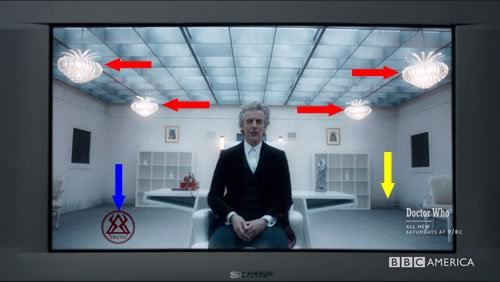
The Light Fixtures & Medusa
The light fixtures are shaped like upside-down jellyfish. Not only is the jellyfish a sea creature, linked to the 12th Doctor, but also the shape of these jellyfish lights is that of the medusa. In biology, a medusa is one of 2 body types of the creatures in the phylum Cnidaria in which the body is shaped like an umbrella.
In fact, we’ve examined why Medusa is important in 2 other contexts in DW in my analysis of “Extremis.” Here’s the short version below, although I will add some more references below them.
“The Stolen Earth” and “Journey’s End”
One Medusa reference shows up in “The Stolen Earth” and “Journey’s End” as the place – the Medusa Cascade – where the Daleks took the Earth and 26 other planets. The Earth and planets are metaphors for the Doctor and The Ghost.
The Doctor was abducted in TPEW, so he is the stolen Earth and in the Medusa Cascade metaphor. Therefore, this is replaying the episode with the 10th Doctor and Donna.
“Vincent and the Doctor” & Medusa
In “Vincent and the Doctor,” we saw the Greek mythological reference to Medusa with the statue of Perseus holding the decapitated head of Medusa. I wrote
However, Vincent’s Medusa is represented by the blind, invisible Krafayis, who, because he was afraid, lashed out and killed people. The Krafayis is a metaphor for the Doctor along with Vincent, and both represent the 12th Doctor.
The 2-Doctor principle still holds in this episode: one mirrors Vincent and the other the ghostly Krafayis, which the Medusa lights represent.
In “The Lie of the Land,” Bill mirrors Vincent, which we’ll examine more below.
The Truth Logo in the Library
Referencing our image from above once again, the Truth logo has a triangle, which represents the Monks. However, there are 2 lightning bolt type symbols that mirror each other, suggesting 2 sets of people, like we’ve seen before.
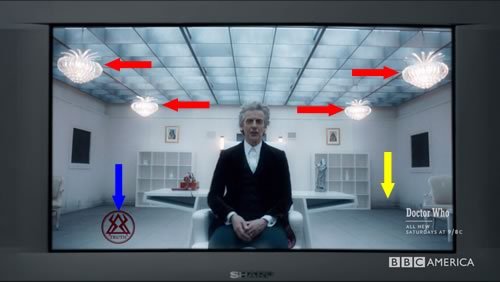
They look similar to the rest of Rassilon’s logo from “The Five Doctors,” shown below (red arrow). The 1st Doctor is on the left. Sarah Jane is in the middle, and the 3rd Doctor is on the right.
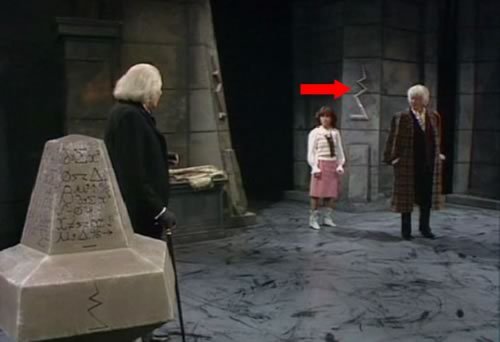
The Doctor, Bill & Nardole in the Ship’s Library Metaphor with Mold
It’s not until Nardole tells Bill that the Doctor is held on a prison ship that we learn where this Library Metaphor is. The ship actually relates to the Eye of Harmony, like we’ve seen with the Star Whale on the Starship UK.
Because we are dealing with the Library metaphor, and Bill and Nardole are going to rescue the Doctor, Bill is mirroring the 10th Doctor and Nardole is mirroring River. And the 12th Doctor is mirroring CAL. He is also mirroring Doctor Moon in his brainwashing of people.
Bill looks in the window of the door, shown below. It’s a circle, which says that the Doctor is a mind of pure consciousness. He is a ghost and/or in a computer. We know he’s a ghost. Because of all the mirroring, we know he is also inside a computer, like CAL. However, the mirroring isn’t all that supports this conclusion.

Of course, we saw the Doctor and Missy in the Vault with the forest, mirroring the forest in CAL’s Library dream. But that’s still not all that supports the idea that the Doctor, Bill, and Nardole are inside the computer.
Mold in the Library Metaphor
In the image above, there is lots of mold on the walls (red arrow).
Why would the room the Doctor is in contain mold? Obviously, there is a moisture problem, but why? What really is the meaning?
We saw a big mold problem in “Under the Lake” and “Before the Flood” in the submerged underwater mining facility called the Drum. There is also a plague of ghosts.
There was something odd in TRODM where the spaceship the Doctor and Nardole boarded was dripping water from the ceiling. Why? That made me think the ship wasn’t really in space but instead under the water. Regardless of where it was, a plague was involved. Harmony Shoal was creating a plague of possessions and scar-faced people.
Anyway, mold suggests potentially harmful health issues, and the Doctor alludes to this in an interesting way in the conversation after Bill shoots him.
BILL: So you, you, you haven't, you haven't turned. You're not working for them.
DOCTOR: No, of course not. I've spent the last six months planning, and also recruiting all these chaps. Deprogramming them one by one, talking some sense into them. And there's loads of them. I could do with a Strepsil.
Strepsils, a British company, produces remedies for sore throats, nasal congestion, and cold symptoms. Some of their products are anti-bacterial, which is very important since the previous episode said there was a bacterial plague.
The Doctor is saying he has an infection, but it’s only metaphorically bacterial. It’s viral, as in a computer virus.
“The Return of Doctor Mysterio”
The Doctor in TRODM says something that can be taken 2 ways when young Grant sneezes.
DOCTOR: Got a cold there, Grant? YOUNG GRANT: I always get a cold at Christmas. DOCTOR: Me too. Or an invasion.
Of course, the Doctor could be talking about various invasions like the 10th Doctor story “The Christmas Inavasion.” However, he can also be talking about a computer virus.
Bill, Bill’s Mom & the Computer Virus
In “Forest of the Dead,” the Doctor mentions living minds that are trapped inside CAL’s.
DOCTOR: The data core. Over four thousand living minds trapped inside it.
In “The Lie of the Land,” Bill integrates with the seated Monk. She is mirroring River here.
The Doctor once again mentions a living mind. It’s Bill’s. The isolated subroutine, a computer programming term, refers to Bill’s mom. There’s no reason to use the term “subroutine” if we are not talking about a computer.
DOCTOR: She's filling its mind with one pure, uncorrupted, irresistible image. And it's broadcasting it to the world, because it can't help it. All those years you kept her alive inside you, an isolated subroutine in a living mind. Perfect, untouchable. She's a window on the world without the Monks. Absolutely loved, absolutely trusted. And that window is opening everywhere. (All over the world, the word Truth and a loving woman reaching out a hand are being transmitted to the populace. The Memory Police stop trying to manhandle someone into their van.) DOCTOR: A glimpse of freedom. But a glimpse is all you need. The lie is breaking. Bill's mum, you just went viral!
Once again, the term “viral” comes up, which, in this case, can both be a computer virus, and a term signifying just how fast something spreads through a population by being frequently shared among a large number of individuals. It’s all happening in the Library metaphor in the computer.
The Vault: Another Library Metaphor & Missy’s Con
We can’t trust what we see with the Vault. In “Extremis,” we saw the image below with the Doctor, Missy, and the Vault. There is an inverse reflection of the Vault in the water, so things are upside down with it. This scene feels so wrong, too. Things aren’t happening how we think they are.
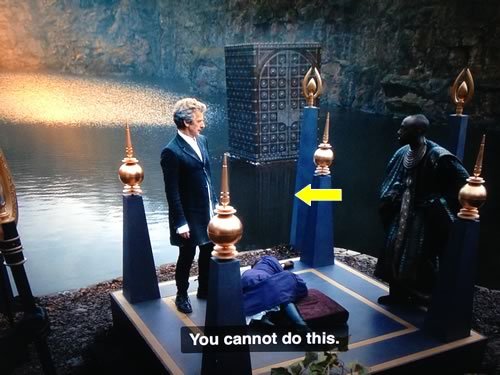
The Doctor has so many recorded deaths to his name. Why isn’t he the one being executed? Things are running backward in this “Extremis” episode, so don’t trust anything.
Regarding “The Lie of the Land,” if Missy is inside the djinni containment field, who pounded on the Vault doors from the inside? What did she eat for 6 months when no one came to see her? Why is she still there after 6 months since she claims she could have escaped? These don’t make sense unless things aren’t as they seem.
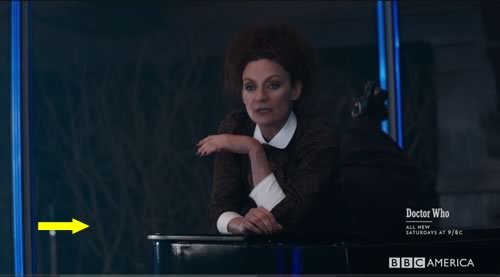
This is all part of the dream anyway in the Library. On top of this, Missy is running a con.
Our 1st Look at Missy: the Gnostics & the Minotaur
When the Doctor and Bill enter the Vault, we see her inside the djinni container. She is playing “Gnossienne No 1” a piano composition by French composer Erik Satie written in the late 19th century. Satie created the term “Gnossienne.” There are actually several Gnossiennes compositions.
It’s an interesting term, which can relate in multiple ways to what we’ve already examined. According to Wikipedia:
The word appears to derive from gnosis. Satie was involved in gnostic sects and movements at the time that he began to compose the Gnossiennes. However, some published versions claim that the word derives from Cretan "knossos" or "gnossus"; this interpretation supports the theory linking the Gnossiennes to the myth of Theseus, Ariadne and the Minotaur. Several archeological sites relating to that theme were famously excavated around the time that Satie composed the Gnossiennes.
We’ve examined the Gnostics, the triad, and the Trinity with regards to Abraxas in my analysis in “Extremis,” and we’ve looked at the Minotaur multiple times. In fact, we’ll examine below how the Doctor breaking Bill’s confidence before she shoots him is an allusion, in part, to “The God Complex,” where we saw the Minotaur.
Interestingly, there is a set of 3 Satie pieces called “Trois Gnossiennes.” Certainly, this does represent the Trinity and the 3 brainstems “Extremis” alluded to.
Missy One Step Ahead of Doctor
When it comes to Missy, the Doctor seems one step or so behind. It’s felt that way from the start. First, he didn’t know whom she was when he met her, which is really strange since the 10th Doctor said he would always know when the Master was near. Then, she’s more of the magician than he is with her parlor tricks of stopping the planes, when he couldn’t even do the disappearing coin trick in the minisode “The Doctor’s Meditation.” Also, she was the architect of controlling him with Clara. Additionally, she gave him an army of people who died for him. He had no idea she was going up and down his timeline uploading minds to her Nethersphere.
Did Missy convert River to a Cyberman, too? I’ve wondered that for a long time.
Anyway, now the Doctor wants to know if Missy has dealt with the Monks before because he needs help.
Is Missy from the future?
The future, present, and past are an example of a triad, a trinity. What if we have past, present, and future Masters/Mistresses? We will have the past Master as John Simm and maybe the future Master as Missy. After all, River was from the Doctor’s future, so we have a precedent.
Missy’s Requests
In exchange for information, Missy has some interesting requests:
MISSY: I've got some requests. I want some new books, some toys, like a particle accelerator, a 3-D printer and a pony.
Missy sounds like a child, wanting toys, especially a pony. The child aspect goes along with what we’ve examined. The 3-D printer is a reference to “Heaven Sent” and the idea of just printing a new copy of the Doctor when needed.
Particle Accelerator & The Da Vinci Code
The particle accelerator is a reference to CERN. In my “Extremis” analysis, we already looked at how Dan Brown’s 2000 novel Angels & Demons involves antimatter created at the LHC to be used in a weapon against the Vatican. However, in “Extremis,” being things are backwards, a weapon of mass destruction is sent from the Vatican to CERN.
Dan Brown also wrote The Da Vinci Code a 2003 mystery-detective novel by Dan Brown, which has relevance to images in “The Lie of the Land.” Wikipedia says
It follows symbologist Robert Langdon and cryptologist Sophie Neveu after a murder in the Louvre Museum in Paris, when they become involved in a battle between the Priory of Sion and Opus Dei over the possibility of Jesus Christ having been a companion to Mary Magdalene. The title of the novel refers, among other things, to the finding of the first murder victim in the Grand Gallery of the Louvre, naked and posed similar to Leonardo da Vinci's famous drawing, the Vitruvian Man, with a cryptic message written beside his body and a pentacle drawn on his chest in his own blood.
Regarding Mary Magdalene, Wikipedia says
[She] was a Jewish woman who, according to texts included in the New Testament, traveled with Jesus as one of his followers. She is said to have witnessed Jesus' crucifixion and resurrection. Within the four Gospels she is named at least 12 times, more than most of the apostles.
The Gospel of Luke says seven demons had gone out of her, [Lk. 8:2] and the longer ending of Mark says Jesus had cast seven demons out of her. [Mk. 16:9] She is most prominent in the narrative of the crucifixion of Jesus, at which she was present, and the witness in all four gospels of the empty tomb, the central fact of Jesus' resurrection. She was also present two days later, immediately following the Sabbath when, according to all four canonical Gospels,[Matthew 28:1–8] [Mark 16:9–10] [Luke 24:10] [John 20:18] she was, either alone or as a member of a group of women, the first to testify to the resurrection of Jesus. John 20 and Mark 16:9 specifically name her as the first person to see Jesus after his resurrection.
At the beginning of “The Lie of the Land,” we see 2 altered images related to Leonardo da Vinci.
The first image is an alteration of da Vinci’s Vitruvian Man.
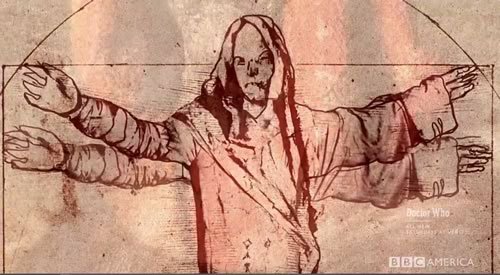
The second da Vinci image is the altered Mona Lisa, which is also related to The Da Vinci Code.
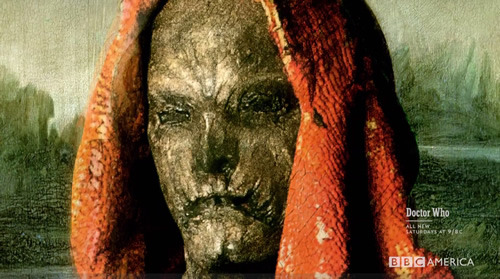
According to The Da Vinci Code Wikipedia information:
The androgyny of the Mona Lisa reflects the sacred union of male and female implied in the holy union of Jesus and Mary Magdalene. Such parity between the cosmic forces of masculine and feminine has long been a deep threat to the established power of the Church. The name "Mona Lisa" is actually an anagram for "Amon L'Isa", referring to the father and mother gods of Ancient Egyptian religion (namely Amun and Isis).
Missy & Her Con Job
As more proof we shouldn’t trust what we think we know:
MISSY: Start at the beginning. How do they get a foothold on a planet?
DOCTOR: Some idiot asks for their help.
MISSY: Well, not just any idiot. It has to be a properly consenting human mind. A pure request, one without agenda or ulterior motive.
What Missy is saying is very subjective as far as Bill is concerned because she had an agenda to save the Doctor. And then she wanted him to save Earth.
DOCTOR: It's them. That person creates a psychic link, which forms an anchor that keeps the Monks in power. They're the lynchpin.
MISSY: Scalding. Ow.
DOCTOR: But the brainwaves of one person wouldn't be powerful enough to contain an entire planet. The statues! As soon as they got here, the Monks put up statues in every town square, and every park, and every playground.
That would be a huge number of statues, which I have a hard time believing. Why not use satellites, it’s easier, like the Arch Angel Network the Master set up?
MISSY: You're on fire, you're literally on fire you're so caliente. That's Spanish for hot.
DOCTOR: The statues are transmitters. They boost the signal and beam it out all around the world.
MISSY: Boom! You've exploded. Now, all you have to do is find whoever opened the door to the Monks in the first place.
DOCTOR: Say I already have.
MISSY: Oh! Well then, you're sorted. Just kill them. That weakens the Monks' grip on the world.
Here, Missy says, “Just kill them” to weaken the Monks’ grip.
DOCTOR: No, no. No, no, that can't be right. There are planets that the Monks have ruled for thousands of years.
MISSY: It's passed on through the bloodline. Usually the lynchpin goes on to lead a normal life, have their own family, and the link is passed down through the generations.
It seems very odd that a psychic link could be passed on in the bloodline. We do know from “The Curse of Fenric” that the curse is passed down through the generations. However, no one said anything about a psychic link. I have a hard time believing this.
DOCTOR: But the Monks must have worked that out. They've been doing this for millennia.
MISSY: Why? If the link is passed on, the Monks stay in charge, through, they think, their ruthlessness and efficiency. But if the lynchpin dies and the link isn't passed on, and the Monks get booted off the planet, well, they just chalk it up to experience.
Missy starts playing “The Entertainer” a classic piano rag written by Scott Joplin in 1902. It’s the theme music for the movie The Sting. Wikipedia says, “The Sting is a 1973 American caper film set in September 1936, involving a complicated plot by two professional grifters (Paul Newman and Robert Redford) to con a mob boss (Robert Shaw).”
In “Hell Bent,” the gang boss is defined as Rassilon. Clara says, “And there was this gang boss and he wanted to kill you.” The Doctor is mirroring Rassilon, at times, in “The Lie of the Land.”
Missy is running a con. First she says the lynchpin has to die, then she tells Bill she shouldn’t die. Just become a husk. Interestingly, Caecilius’ first name is Lobus meaning husk or pod. Bill represents Caecilius because her jacket had the volcano on it.
In fact, interestingly the display on the supply ship that Nardole and Bill were on has the word “slave” (yellow arrow) and next to “Corp” is “Conning Station” (red arrow). All the ship scenes were just wrong anyway, so it’s all a con.
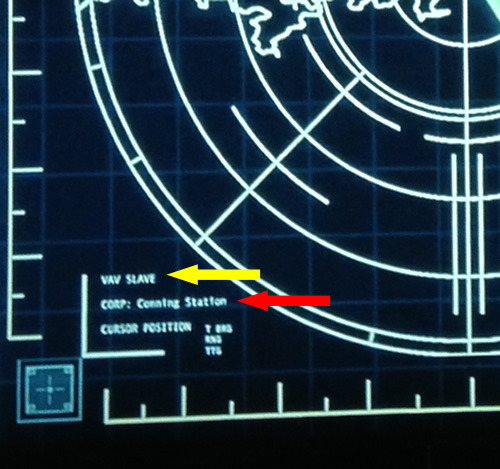
BILL: No, it's okay. I want to speak to her.
MISSY: Yes?
BILL: So when you defeated the Monks, that's how you did it?
MISSY: Well, at this point, all that was left of the bloodline was a wee girl, and I just pushed her into a volcano.
BILL: It's me. The lynchpin is me. MISSY: Awkward. BILL: So you're saying I have to die. MISSY: No. If you were just to die, everyone's false memories would have to fade, and that could take ages. It's actually better if you keep breathing, if your brain just keeps transmitting, well, nothing. That would blot out the residue false memories. BILL: What would be left of me? MISSY: You'd be a husk. Completely and irrevocably brain-dead. You couldn't even get on Celebrity Love Island.
Missy & Tears
At the end of the episode with Missy, we see tears. Her words don’t ring true to me. In fact, her words sound more like something the Doctor would say. I didn’t believe any of this from her.
(The containment field is down. Missy and the Doctor sit by an electric fire.) MISSY: I keep remembering all the people I've killed. Every day I think of more. Being bad, being bad drowned that out. I didn't know I even knew their names. You didn't tell me about this bit. DOCTOR: I'm sorry, but this is good. (She turns her face away, to hide her tears.) MISSY: Okay.
Dystopian Society, Big Brother, Influential Novels & a Movie
We see the opening of the episode, showing how the Monks have integrated themselves into human history, as the Doctor narrates off camera. Then, we see a mother, father, and boy watching the Doctor on TV, shown below. The boy is holding a rabbit (red arrow). There is an inverse reflection on the table (yellow arrow). The woman has hidden souls, shown by the Xs behind her.

Everything seems somewhat normal, until the Memory Police break in. They take the mother into custody, and the commander carries a shoebox (yellow arrow), shown below. It’s similar to the one Bill has.
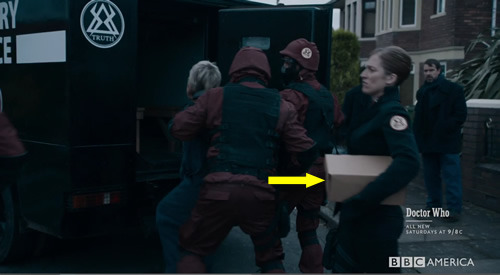
In fact, Bill and the Mother, shown below, are both associated with the Monk with the gap between the teeth. Each Monk is different, so this is significant, saying that Bill is mirroring the mother. There are 2 sets of the women. One set is on the side of the Monks. Therefore, one set is in the real universe while the other set is in the alternate universe, just like Donna in “Turn Left.”
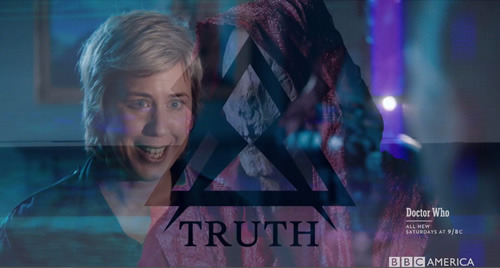
The mother is charged with “the manufacture and possession of propaganda intended to undermine the True History. It is in contravention of the Memory Crimes Act of 1975.”
The 1975 year is important because that is the 13th season of Classic Who, which includes some very important 4th Doctor episodes that I’ve talked about in bold.
· “Terror of the Zygons”
· “Planet of Evil”
· “Pyramids of Mars”
· “The Android Invasion”
· “The Brain of Morbius”
· “The Seeds of Doom”
All 3 of these episodes in bold are about usurpation. I’d have to go back to the others and watch them to find out what they are about. I’ll talk about Morbius in a few minutes because he is referenced in the Library.
The police state in “The Beast Below” resembles in some ways what is going on in “The Lie of the Land.”
Clearly, the Doctor is part of a dystopian society, helping to brainwash the world through broadcasts. It’s not that different from what the Master did with the Arch Angel Network in “The Sound of Drums” and “The Last of the Time Lords.” In fact, the Doctor makes a reference to the latter in the Vault:
BILL: God, the way you and Nardole have been carrying on, I thought you had some kind of monster in here, or something! DOCTOR: I do. Missy, Bill. Bill, Missy, the other Last of the Time Lords.
In “The Last of the Time Lords,��� the Doctor was a prisoner in the birdcage. Martha mirrored him, traveling the world and spreading the word that would save the Doctor and Earth from the Master. At times, Bill, in “The Lie of the Land,” is mirroring Martha, as well as the Doctor.
The Doctor, by keeping Missy in the cage, is mirroring the Master, and Missy is mirroring the Doctor. In fact, to reinforce that Doctor/Missy mirror, we see Missy’s eyes and eyebrows, shown below, just like we see with the Doctor in the opening credits.

BTW, I haven’t mentioned this, but the opening credits changed a bit in Season 10. The Doctor has a 3rd eye-like structure in between his other 2 on the bridge of his nose below (red arrow). While it’s not in the middle of the Doctor’s forehead, like Davros, it does resemble that of Davros. And the Doctor did mirror Davros in “The Witch’s Familiar” when the Doctor sat in Davros’ chair.
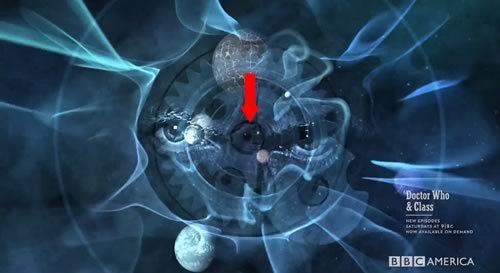
Big Brother and 1984
In 1949, English author George Orwell published his dystopian novel Nineteen Eighty-Four, often written as 1984. Many of the concepts in “The Lie of the Land,” such as thought manipulation and omnipresent government surveillance, Truth, Thought Police (called Memory Police in DW), and the pyramid, come from the novel. However, all of these (except the pyramid) are also hallmarks of authoritarian and totalitarian governments in general.
The term “Big Brother” comes from the novel. The character is the symbolic leader of the totalitarian government, controlling all aspects of social life, including the thoughts and actions of its citizens. In the case of “The Lie of the Land,” the Doctor represents tyranny and Big Brother, who brainwashes people with the Monks’ propaganda. There is constant government surveillance of its citizens by the Thought Police.
BTW, this is why The Ghost is represented by the Tyrannosaurus rex. The tyrant lizard.
The government in 1984 even controls the language and introduces Newspeak vs. Oldspeak (Standard English). Newspeak influences and limits thought by decreasing the range of expressiveness of the English language. Important words come to have the opposite meaning to hide the truth. For example, “war is peace, freedom is slavery, and ignorance is strength.” These words are inscribed on a pyramid of the Ministry of Truth.
I mentioned “Oranges and Lemons,” the traditional English nursery rhyme, and how part of it represented torture in my analysis on “The Pilot.” Diffcat made a great point in a comment to it that it also refers to 1984. The nursery rhyme is a symbol of tyranny. People can’t remember the rhyme in its entirety because Big Brother has wiped out most of traditional English culture.
The 1st Doctor and the 12th Doctor were under surveillance. The Daleks were watching the 1st Doctor, and it looked to me like he and his companions were in some type of miniscope or some lab-type environment, like specimens to be observed. As far as the 12th Doctor is concerned, there are lots of eye symbols in his episodes, meaning someone is watching him. I won’t be surprised if the Doctor has been miniaturized.
The Handmaid’s Tale
In 1985, Canadian author Margaret Atwood published her dystopian novel The Handmaid's Tale. Since monks normally symbolize religion, this novel seems appropriate.
According to Wikipedia,
Set in a near-future New England, in a totalitarian theocracy that has overthrown the United States government, the novel explores themes of women in subjugation and the various means by which they gain individualism and independence. The novel's title echoes the component parts of Geoffrey Chaucer's The Canterbury Tales, which comprises a series of connected stories ("The Merchant's Tale", "The Parson's Tale", etc.).
The Handmaid's Tale is set in the Republic of Gilead, a theocratic military dictatorship formed within the borders of what was formerly the United States of America.
Beginning with a staged attack that kills the President and most of Congress, a Christian fundamentalist movement calling itself the "Sons of Jacob" launches a revolution and suspends the United States Constitution under the pretext of restoring order. They are quickly able to take away women's rights, largely attributed to financial records being stored electronically and labelled by sex. The new regime, the Republic of Gilead, moves quickly to consolidate its power and reorganize society along a new militarized, hierarchical regime of Old Testament-inspired social and religious fanaticism among its newly created social classes. In this society, human rights are severely limited and women's rights are even more curtailed; for example, women are forbidden to read.
V for Vendetta
“The Lie of the Land” also has elements of the movie V for Vendetta, which aren’t in the other novels. It’s set in the UK, like the Starship UK represents the UK, and there is a virus. According to Wikipedia:
V for Vendetta is a 2005 dystopian political thriller film directed by James McTeigue and written by The Wachowski Brothers, based on the 1988 DC/Vertigo Comics limited series of the same name by Alan Moore and David Lloyd. The film is set in an alternative future where a neo-fascist regime has subjugated the United Kingdom.
In 2028, the world is in turmoil and warfare, with the United States fractured as a result of prolonged second civil war and a pandemic of the "St. Mary's Virus" ravaging Europe. The United Kingdom is ruled as a fascist police state by the Norsefire Party, helmed by all-powerful High Chancellor Adam Sutler. Political opponents, immigrants, Jews, Muslims, atheists, homosexuals, and other "undesirables" are imprisoned and executed in concentration camps.
Of course, St. Mary is also a reference to the religious symbolism in DW.
The Doctor’s Terrible Choice
In “Before the Flood,” the Doctor told the Fisher King:
FISHER KING: You will be a strong beacon. How many ghosts can I make of you?
DOCTOR: You know, you've got a lot in common with the Tivoleans. You'll both do anything to survive. They'll surrender to anyone. You will hijack other people's souls and turn them into electromagnetic projections. That will to endure. That refusal to ever cease. It's extraordinary. And it makes a fella think. Because you know what? If all I have to do to survive is tweak the future a bit, what's stopping me? Oh, yeah, yeah, yeah, yeah, yeah. The ripple effect. Maybe it will mean that the universe will be ruled by cats or something, in the future. But the way I see it, even a ghastly future is better than no future at all. You robbed those people of their deaths, made them nothing more than a message in a bottle. You violated something more important than Time. You bent the rules of life and death. So I am putting things straight. Here, now, this is where your story ends.
(The Fisher King growls.)
The Doctor said it, “Maybe it will mean that the universe will be ruled by cats or something, in the future. But the way I see it, even a ghastly future is better than no future at all.”
Tyranny or the Apocalypse
According to what the Doctor spells out in “The Lie of the Land,” these really are the choices: tyranny or the apocalypse.
DOCTOR: Human society is stagnating. You've stopped moving forward. In fact, you're regressing. BILL: This isn't exactly much better. DOCTOR: It's safer. BILL: Not so much for the people the Monks are killing. DOCTOR: The Romans killed people and saved billions more from disease, war, famine and barbarism.
Barbarism is a very subjective term, depending on whom is using it. The Romans, which the Doctor mentions (here’s a reference tying Rome and Pompeii to the Library), thought of others as barbarians. However, many historians today tie barbarism to the Romans.
Regardless, disease, war, and famine refer to the 3 of 4 of the Horsemen of the Apocalypse. The Romans, in a certain period, symbolized conquest.
· White horse (Conquest)
· Red horse (War)
· Black horse (Famine)
· Pale horse (Disease and Death)
The rider of the white horse in the New Testament is controversial. Some consider him to represent Christ, while others believe he symbolizes the Antichrist. There is also the idea among some that there are 2 white horses where the 1st is the Antichrist, while the 2nd is Christ.
There are 4 white horses in nuWho that I can think of. The 1st is the 10th Doctor in “The Girl in the Fireplace,” where he crashes through the mirror on horseback to save Renette.
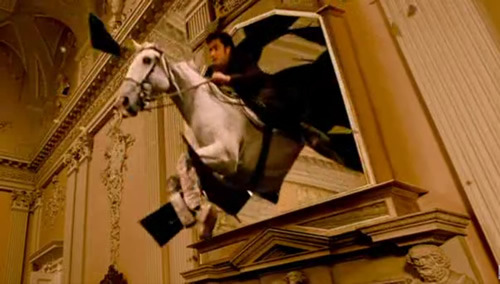
The 2nd and 3rd white horses are in “The Pandorica Opens,” where River and Amy are riding them.
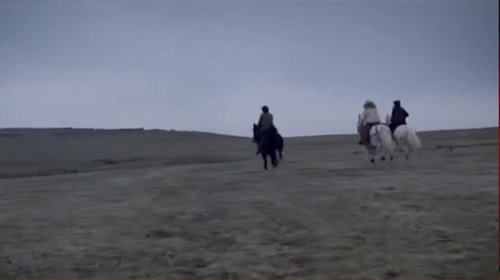
The 4th is in “The Day of the Doctor,” when the 10th Doctor thinks Queen Elizabeth I is a Zygon. However, it turns out to be the white horse. It seems like this white horse might symbolize the Antichrist. The Zygon then becomes a duplicate Queen Elizabeth I.

Are we sure the Doctor married the right queen? It would make sense if the Doctor married the Antichrist. Because we are talking about the queen, we need to also look at Liz 10 in “The Beast Below.” Liz 10 represents the continued bloodline of Queen Elizabeth I. Liz 10 mirrored River, so the queen is River’s bloodline.
Here are a couple of ways to solve this alternate universe problem. River is trying to rescue the Doctor, as we’ve seen, so she would need to kill the alternate-Doctor to destroy this alternate world, like Donna’s death in “Turn Left.” Or the Doctor’s Mother of God or God consciousness can integrate with him, like CAL integrated with River. The possessed part of the Doctor has to be neutralized. The illusions have to die.
Can’t Win a War
So the 12th Doctor below is talking about the end of the world. He and Bill continue the conversation:
BILL: No, wait. What about free will? You believe in free will. Your whole thing is. You made me write a three thousand-word essay on free will. DOCTOR: Yes, well, I mean, you had free will, and look at what you did with it. Worse than that, you had history. History was saying to you, look, I've got some examples of fascism here for you to look at. No? Fundamentalism? No? Oh, okay, you carry on. I had to stop you, or at least not stand in the way of someone else who wanted to, because the guns were getting bigger, the stakes were getting higher, and any minute now it was going to be goodnight, Vienna. By the way, you never delivered that essay, anyway.
The Doctor is right about the guns getting bigger and the stakes getting higher. In fact, we examined this very problem in Chapter 17 of Fairytales and Romance in Doctor Who. I wrote
With the dead being weaponized [in “The Empty Child” and “The Doctor Dances”] and in “Under the Lake,” “Before the Flood,” and even “Heaven Sent” (you’ll see more below), there’s no way to win a war. Missy weaponized the dead, too, in “Dark Water” and “Death in Heaven.”
So the choices here come down to annihilation or tyranny.
However, in the alternate world, the alternate-Doctor would have to die, but he hasn’t figured that out yet.
Why are Daleks and Cybermen, for example, getting extraordinary powers? It comes back to what was happening in “The Mind Robber.” Thoughts coming to life.
Goodnight, Vienna: 2 Meanings
The Doctor mentions Goodnight, Vienna above. I believe it has 2 meanings.
Goodnight Vienna & The Day the Earth Stood Still
Goodnight Vienna is Ringo Starr’s 4th studio album, but what is important is the album cover, which is an image from Wikipedia.

The image – with Ringo’s head replacing that of actor Michael Rennie who plays Klaatu – is from the 1951 sci-fi movie The Day the Earth Stood Still.
Wikipedia says of the movie:
Klaatu emerges from the saucer and addresses Barnhardt's assembled scientists, informing them that he represents an interplanetary organization that created a police force of invincible robots like Gort to "patrol the planets in spaceships like this one, and preserve the peace" by automatically annihilating aggressors. "In matters of aggression, we have given them absolute power over us. This power cannot be revoked." Klaatu concludes with, "It is no concern of ours how you run your own planet, but if you threaten to extend your violence, this Earth of yours will be reduced to a burned-out cinder. Your choice is simple: join us and live in peace, or pursue your present course and face obliteration." Klaatu and Gort reenter the spaceship and depart.
So here’s a similar message as what the Doctor is saying about peace on Earth vs. the weapons and stakes, ending in the apocalypse. However, just like “The Lie of the Land,” the message runs opposite to what is happening. The external aggressors, according to what we’ve seen in this episode, are the Daleks, Cybermen, and the Weeping Angels. The Monks, too, are external aggressors, but in a different way.
However, the Doctor going hell bent through the universe would definitely be the aggressor that Klaatu was talking about.
Goodnight, Vienna: the Movie
I believe Goodnight, Vienna also applies to the movie because Austria comes up again. We saw the writer of the Dream Novel was Austrian. However, there is also another Austrian clue in “The Lie of the Land.” Oddly, in the shot of Paris, there are 2 Austrian flags on the bridge near the Eiffel Tower. To make things clear, the flag on the left has 1 dot with it while the other flag has 2 dots. It suggests to me there are 2 flags, 2 sets of dots, and 2 Austrian references, which is why I believe this Goodnight, Vienna reference makes sense.
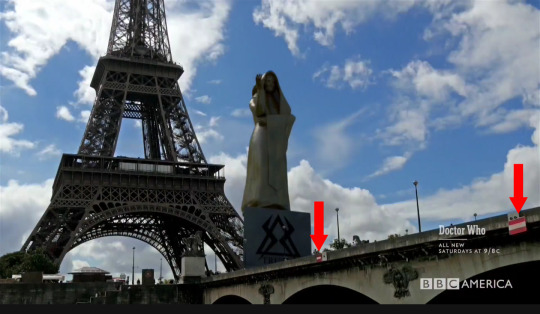
Wikipedia says
Goodnight, Vienna (also known as Magic Night) is a 1932 British musical film directed by Herbert Wilcox and starring Jack Buchanan, Anna Neagle and Gina Malo. Two lovers in Vienna are separated by the First World War, but are later reunited.
Max is an Austrian officer in the army and son of a highly placed general. His father wants him to marry a Countess but he has fallen in love with Vicki. Attending a party given in his honour, they are informed that war has broken out. Max writes a note to Vicki and goes off to war. Unfortunately the note is lost. Some time after the war, Max is just a shoe shop assistant while Vicki is now a famous singer. They meet and at first she snubs him but then falls in love with him again.
I see this as foreshadowing. Given the mirrors set up, it would most likely be Clara and the Doctor.
Breaking Bill’s Confidence: Mirroring of the 7th Doctor and Ace
In my TPEW analysis, I proposed that the Doctor would probably have to break Bill’s confidence in him, just like the 7th Doctor did with Ace in “The Curse of Fenric” and the 11th Doctor did with Amy in “The God Complex.”
While the scene mirrors both of the Doctors and companions, although in a seemingly deadly way, the Doctor does a very 7th Doctor thing in his conversation with Bill.
BILL: Because the world was invaded by zombie Monks! DOCTOR: And whose fault was that, huh? I didn't ask for my sight back. No, you took it upon yourself to ignore me, to do what you thought was best. All I can say is that we are lucky it was a benevolent race like the Monks, not the Daleks. Yes, I know the Monks are ruthless. I get that. Yes, they play with history and I'm not exactly thrilled about that. But they bring peace and order.
The 7th Doctor rolls his Rs all the time. I love to listen to his Scottish accent, although it’s not very heavy. In contrast, we rarely hear the 12th Doctor roll his Rs. However, when he said “thrilled” in that 2nd to last sentence above, he did. He’s mirroring the 7th Doctor to bring in the idea of possession, the evil entity Fenric, and the curse, which is love.
The Regeneration & Maniacal Laughter: What Happened to the Doctor?
The Doctor really isn’t himself. It’s clear from the events and even before the regeneration scene that something is wrong. Sure we saw above that the Doctor had to make a terrible choice. However, that doesn’t account for some bizarre behavior.
Bill Shooting the Doctor
Bill has a violent streak, shooting the Doctor in the way she did. It really doesn’t make sense in a way, unless Bill has gone mad. She’s mirroring the Doctor in “Hell Bent” where he’s pushed past his limits. The Doctor is mirroring Rassilon, at least to some extent, in that he is the face of tyranny in this totalitarian state, just like Rassilon is on Gallifrey. However, we don’t exactly know the complete role the Doctor is playing here. But the Doctor mirroring Rassilon does agree with what we’ve examined so far.
Regarding Bill, she is also a mirror of several other people in various ways, such as the 12th Doctor, River, and then Vincent Van Gogh from “Vincent and the Doctor.” She, as Vincent, symbolically kills the Krafayis and beheads Medusa in this scene, which plays out in another symbolic way when she integrates with the seated Monk. However, nothing is over. People are still caught in the Matrix, and most likely things will become more ridiculous until the end.
So there are musical mirrors going on in the entire ship scene.
Maniacal Laughter
But there are some oddities going on, too, with the regeneration, and then the scene after that where the Doctor is laughing maniacally. If we didn’t see anything was wrong or suspected that something was possibly off target with the regeneration scene, the scene with the Doctor laughing maniacally is a dead giveaway that this is terribly wrong.
Who is this man in the image below, who is laughing maniacally as the boat is going to ram the dock? Since when does the Doctor do this? It’s not the Doctor we know.
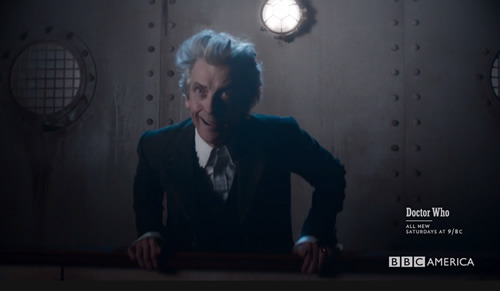
However, this is a very Master thing to do. John Simm’s Master laughs maniacally in “The End of Time.” We see and hear the Master’s maniacal laughter, just like Donna’s grandfather Wilfred, the Doctor, and the Ood. Has the Master possessed the Doctor through the Eye of Harmony? This is either the Master or the Valeyard. It could be Morbius, too. In fact, Morbius could be the Valeyard. There are several possibilities.
It wouldn’t be surprising if the Master, the Valeyard, and the Time Lords are working together to use the Doctor. It happened in the 6th Doctor stories collectively called The Trial of a Time Lord. At some point, I have to bite the bullet and slog my way through the 8 other episodes of the 14-episode series. It’s terribly written and dreadfully boring.
The Regeneration
The whole regeneration is just plain weird. It’s so not surprising that it was fake, as far as we can tell. In fact, I expected it. We examined multiple times how the Doctor doesn’t have to regenerate, especially since I believe he represents the end of a cycle of Doctors from 0 to 12. (He’s not even really the 12th; he’s the 14th incarnation. However, his 3 faces can span the cycle change.) Since the subtext suggests this isn’t the 1st cycle, the Doctors must either have their memories wiped each time, or they get reactualized, like we saw in “Heaven Sent” with the 3-D printer idea (the teleporter), creating a copy. Why would Missy want a 3-D printer in “The Lie of the Land,” making a reference to “Heaven Sent”?
But what really happened in the regeneration scene? It doesn’t really make sense that the Doctor would waste regeneration energy. As he told Davros in “The Witch’s Familiar,” when he was going to share some regeneration energy:
DOCTOR: Okay, don't ever tell anyone that I did this. (He waves his hand around until a golden glow forms.) DOCTOR: A little bit of regeneration energy. Probably cost me an arm or a leg somewhere down the line. Or I'll just be really little.
Sure, Moffat used the regeneration to fake people out, but it’s not like DW to do this without having some other meaning.
Why would the Doctor waste regeneration energy? It wasn’t even a small amount. The amount he used would destroy part of the room. Why didn’t that happen? That’s a problem. Besides, Bill wouldn’t know about regeneration energy as far as we know, unless maybe the Doctor used it to heal her in “Oxygen.” However, she never mentioned it. And something like that would be very memorable. Therefore, the regeneration doesn’t make sense unless something else happened.
Interestingly, the Doctor’s personality changes once he uses the energy. He really isn’t himself. Since when does he clap like he did and say something like “good girl” with a huge smile? He doesn’t smile all that much, but on the ship, I think he used up his life’s allotment, so to speak.
He looks possessed to me, and I’ll show you in a few minutes how the Master and the Valeyard wanted to steal the Doctor’s regeneration energy.
The Weird Voodoo Doll Thingy
In the Library metaphor on the ship, there is a weird item under glass. The really interesting thing about this item below (red arrow) is that it has what looks like red eyes on its face, along with gray hair made of light reflections on top of its head. Also, its arms are up, like it’s being held at gunpoint. The gray hair and red eyes suggest that it’s a representation of the Doctor under glass, frozen in a pose suggesting a robbery. In fact, I see the reference to “The Mind Robber.” Also, the red eyes suggest the possession similar to what we see in the pyramid Library metaphor. I’m going to refer to this representation of the Doctor as a Voodoo Doll metaphor.

BTW, the idea of people being frozen under bell-shaped glass reminds me of Clara being under glass in the 11th Doctor story “The Crimson Horror.”
Interestingly, it looks like the broadcasts may come from the Voodoo Doll because it’s centered in the room on the side the Doctor faces in the broadcasts. The possessed Doctor, therefore, would be broadcasting all of this, which totally agrees with what we’ve examined, so far. And he would be mirroring CAL.
Didn’t Agree to What?
Oddly, in the scene with the seated Monk, the 12th Doctor smiles, which is odd, before he places his hands on the Monk’s head. His eyes glow cyan for a moment, and the columns on the Monk’s chair glows cyanish under the Monk’s hands. In the images on the ceiling, the Monks disappear in flames.
BILL: It's working! The Monks are disappearing! (The Doctor suddenly lets go.) DOCTOR: Oh, I didn't agree to this.
Agree to what? This is really odd and sounds like there is a contract. That could go along with the Doctor Faustus idea where Faustus is his own worst enemy, failing to see his own salvation. We examined Faustus and the idea of a contract in my analysis on “The Pilot.” If this Doctor or even Bill, or Clara does, indeed, need to die to set the universe straight, he is, indeed, failing to see the answer.
BILL: What's happening?
DOCTOR: He's fighting back. He's blocking me, countering every move.
The Doctor grabs the Monk's head again. The columns that the Monk's hands are resting on turn from white to red. The Doctor's eyes glow red, and he is in pain. Here’s our cyan and red combination again. Interestingly, the red matches the Voodoo Doll. Red eyes do tend to be a popular color of possession. This scene may be a representation of how the Doctor became possessed in the 1st place. He did it to save Bill.
NARDOLE: Look!
(The Monks reappear in the pictures.)
BILL: Oh, no, no, no.
(The Doctor is violently thrown backwards.)
When Bill later puts her hands on the Monk’s head, her eyes momentarily glow cyan.
BTW, it’s interesting that the real Winston Churchill shows up 3 times in the episode.
The Master Possesses the Doctor
What if the regeneration unleashes something in the Doctor? The only way the regeneration wasn’t going to be faked is if, for example, the Master or Valeyard came forth after the regeneration. We didn’t see that, or did we?
The Master trying to steal the Doctor’s regenerations comes up multiple times in DW. It happens in Classic Who and in the 1996 Doctor Who movie. Here’s a clip with the Eye of Harmony opening and the Master trying to rob the Doctor’s mind in the movie. https://www.youtube.com/watch?v=DAu0OajrO2s The Master is using the Doctor’s companion to gain the Doctor’s regenerations and possess the Doctor by having the companion look into the Eye of Harmony. The Doctor can’t help but watch what is happening because the Master has forced open his eyes.
As we examined in Chapter 16 of Fairytales and Romance in Doctor Who, the whole idea of this is also foreshadowed in the 10th Doctor stories “The Impossible Planet” and “The Satan Pit.” Toby, the archeologist, a mirror of River, gets possessed after the Eye of Harmony is opened. He also is a mirror of the 12th Doctor. Below, in an image from “The Impossible Planet,” Toby is making himself into a cross with his arms out. Since he is part of the cross shape, he is being crucified.
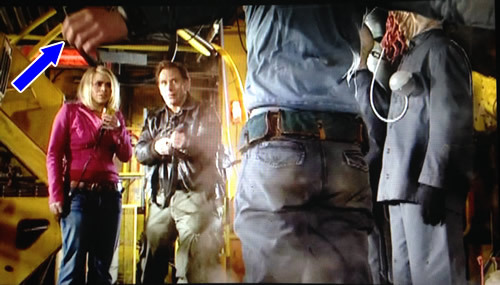
The Beast in “Planet of the Ood” turns out to be the subconscious coming forth in anger and resentment against the oppressors. Bill shooting the Doctor is symbolic of this fight.
Furthermore, the Beast shows up in “The Lie of the Land” in an image. In fact, we saw a similar image in “The Satan Pit.” Below, we see the Monk with some small people. They aren’t attacking the Beast, though, who looks like he is blowing his horn probably as a call to battle. The small people are turned toward the Monk and pointing weapons at it. This very much contradicts what we see in the episode, for the most part.
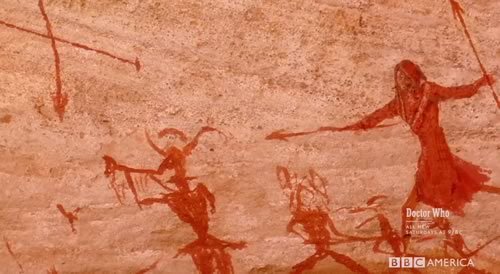
BTW, there is a figurine in the Doctor’s office that shows someone blowing a horn. I haven’t figured out who it is because we’ve never gotten a close shot of it. There are several people in mythology who blow horns. However, it’s very likely that it’s associated with Norse mythology since Ragnarök is looming large. The god Heimdallr has a horn called Gjallarhorn, and he uses it to call the gods to war against the giants. The Monk in the image above looks like a giant of sorts compared to the little people.
In “The Satan Pit,” we see an image below of the Beast but in a different way than the image above. The Disciples of Light, who are tiny in comparison to the gigantic Beast, seem to be fighting it. Several of the stick figures have their arms extended in a way that suggests they’ve thrown something at the Beast.

In these 2 images, the Beast did massively shrink in size from the 2nd image to the 1st above, as we examined that it would in Chapter 15 of Fairytales and Romance in Doctor Who, which is implicit in the meaning of the red gem that young Grant swallows.
The Valeyard
The Valeyard only shows up in the 6th Doctor stories of the trial where the Time Lords and the Valeyard tried to frame the Doctor. However, the Great Intelligence does mention the Valeyard in the 11th Doctor episode “The Name of the Doctor.”
I typically don’t use the information from the non-canon references, but the information below has supporting evidence in canon and the subtext. According to the TARDIS Wikia:
The Valeyard was created as an amalgamation of all the evil inside of the Doctor, taken from somewhere between his twelfth and final incarnations (TV: The Ultimate Foe) by the Time Lords using black ops technology. Genesta hypothesised that he might have been created as a weapon. (AUDIO: The Brink of Death)
We know the Doctor’s blindness and fear weakened him, opening the door to possession by somebody. The 12th Doctor is the 14th incarnation.
When the Seventh Doctor slept, he dreamed of his other selves in his mind, and heard the Valeyard threaten that "when the [Doctor's] strength was at its lowest, he would reach out from the recesses of [the Doctor's] subconscious and seize [his body]." (PROSE: Head Games)
Here’s the synopsis from the first story of Trial of a Time Lord. It’s from “The Mysterious Planet”:
The Doctor is summoned before the High Council of Time Lords to stand trial for the charges of harmful interference to the course of events during his space-time excursions, which have threatened the sanctity of the universe. Indignant at these accusations, the Doctor pleads his case to the Inquisitor with the hope that she will see him as a source of hope and goodwill for existence. However, his prosecuting attorney, a sinister Time Lord known simply as the Valeyard, begins a crusade against the Doctor's life with the motive of painting him out to be a villainous renegade.
The Valeyard's first movement against the Doctor is to review his past interactions on a familiar planet called Ravolox, where he and his-then companion Peri met the morally grey Sabalom Glitz and a tyrannical robot stalking the world's desolated landscape. However, Ravolox holds a terrible truth in the far reaches of its ruins, while the Doctor's trial has its own fair share of startling twists and turns...
Painting the Doctor as a villain is something we saw the Master do in “The Mind Robber.”
BTW, the evil in the Doctor is another reason why I don’t think he can regenerate, at least in the normal way. The evil will just pass on. That has to be resolved, too, which is what I expect from the 12th Doctor’s story.
The other way we’ve seen that Time Lords can continue after they die is to have a projection continue, like we examined in the 3rd Doctor story “Planet of the Spiders.” We looked at that episode in my analysis in “Knock Knock.” Something like the projection idea also happened in “Kinda,” the 5th Doctor story we examined in my analysis in TPEW. It looks like the projection is similar to the idea of the Trinity with 3 people operating as One. The projection is one of those people. The young girl in “Kinda” is like a face of the old blind woman who died, so the old woman’s soul never died, even though her body did. Her soul lives on in the girl.
Morbius in the Library Metaphor
Sadly, I haven’t finished my chapter on Morbius, Dinosaurs, and Superpowers either. I’ve got a lot of chapters started, but found things so circular that I would start another chapter to explain something that I needed prior to finishing a previous chapter.
Morbius & CAL
In “Silence in the Library,” we see Robby the Robot, shown below (blue arrow), from the 1956 movie Forbidden Planet. Robby’s appearance in DW is also a reference to Morbius, a human scientist in the movie, who gains super intelligence and superpowers but doesn’t realize their full extent. Morbius was the inspiration for the 4th Doctor episode “The Brain of Morbius.” I mentioned a few points about CAL, the Library, and her superpowers in Chapter 15 of Fairytales and Romance in Doctor Who.

Morbius in the movie creates, unbeknownst to him, an invisible monster from his subconscious, after he interfaces with an alien device that basically increases his IQ exponentially. The monster goes around killing people. The Krafayis from “Vincent and the Doctor” is the ultimate example of this invisible monster.
While we are led to believe that the Vashta Nerada are causing the shadows in the Library and eating people, something else, too, is happening in the subtext. The same thing is happening with the 12th Doctor. But the question is even bigger than shadows.
Why do books literally start flying off the shelves in the Library when River, the Doctor, and the Lux expedition are in there?
While Doctor Moon has CAL believing that she is using tools to do whatever she is doing, obviously, she isn’t really pressing buttons on a remote, since she is a disembodied mind. Instead, she is using her powers of thought to make the books fly off the shelves.
It’s CAL’s fears, anger, and frustration, the dark side of her that takes over, causing the books to fly off the shelves. But the implication really is that she is causing the shadows and the deaths of people.
The image above could be telling us that CAL is either like (1) Robby, who is a servant to Morbius, or (2) Morbius, himself. She could also be both like Robby and Morbius, a mind-controlled child with superpowers, who is serving someone else. This goes along with “The Mind Robber” concept of the Master being controlled by the Master Brain. Who controls the Master Brain computer?
“The Brain of Morbius,” the 4th Doctor & the Frankenstein Monster Metaphor
In “The Brain of Morbius,” according to the TARDIS Wikia:
Morbius was a notorious and malevolent renegade Time Lord. His career was the first in millennia to dramatically alter Gallifrey's relations with the wider universe. He attempted to overturn Gallifrey's non-interference policy in favour of military conquest, but was exiled and eventually executed, only to survive, saved by his followers.
It was Morbius who urged the Time Lords to a policy of conquest. Here’s a possible connection to the White Horse of the Apocalypse.
The Victor Frankenstein Metaphor & the Monster
Just before Morbius was executed, Doctor Mehendri Solon, a human surgeon and scientist of great renown, saved Morbius’ brain. Solon was a follower of the Time Lord tyrant Morbius. Solon was going to build a body for the brain by piecing together parts of different creatures, similar to what Mary Shelley’s Victor Frankenstein did.
Solon is on Karn where he has Morbius’ brain, and he’s building Frankenstein’s Monster – the body for Morbius.
The surgeon in THORS most likely represents Solon.
Sisterhood of Karn
For some odd reason, the Sisterhood of Karn can sense ships in space around the planet and even beyond it but can’t sense Morbius and Solon’s activities on Karn. This never made sense to me unless Morbius had a stronger mind than the sisters.
They do have superpowers.
The Sisterhood of Karn has similar abilities to Morbius in the movie, as shown in “The Brain of Morbius” episode. For example, they can kill with their minds by placing that idea in someone else’s mind. Also, the sisters state in canon that Time Lords are their “equals in mind power.”
So why haven’t we seen that?
Moreover, the sisterhood has other abilities, for example, telekinetic powers that are similar to what we see with CAL in the Library and with little George in “Night Terrors,” as he sends people to the dollhouse when he is scared. However, CAL and George’s power is chaotic for the most part.
At one point, the 4th Doctor is held prisoner by the Sisterhood of Karn because they think the Time Lords sent the Doctor to steal the Elixir of Life. They tell him they teleported him to their location with their minds. Interestingly, he says, “You mean you still practice teleportation? How quaint!” OK, what does that mean? Still? Quaint? This is one of those episodes that many, many years ago really made me think that something other than what we saw was going on.
They try to kill the Doctor at one point by roasting him at the stake. Their situation is very odd. They are so advanced mind-wise, but their surroundings look as if they live in Medieval times. All those years ago, I actually did connect this episode to an original Star Trek episode, “Errand of Mercy.” Until the previous chapter, this Star Trek episode was the only one I connected. More on this in a bit.
Anyway, the Doctor ends up mentally dueling with Morbius and integrating with him. Below, we see Morbius (red arrow), a creature much like the Frankenstein monster patch-worked together that has a big claw for a right arm. Also, we see the Doctor and Sarah Jane on the right. In the middle is a Circle in the Square metaphor (yellow arrow) that means the Doctor and Morbius are integrated.
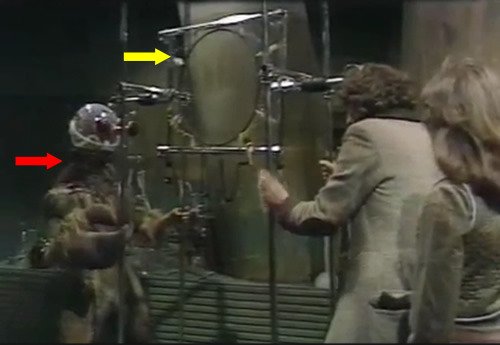
This all comes back to the Eye of Harmony and the Library.
The Doctor ends up mortally wounded, and the Sisterhood of Karn has to save him using the Elixir of Life.
Morbius, the 12th Doctor & Nardole
I talked about the Veritas’ cover in my analysis on “Extremis” having what looks like stitches. This could refer back to how Nardole is being cast as Morbius and the Frankenstein monster. Also, the Doctor is being cast the Victor Frankenstein metaphor, Dr. Solon. In THORS, the Doctor assumed the role of the surgeon.
More Morbius references showed up in TPEW and “The Lie of the Land” that we need to look at.
The Pyramid at the End of the World
In TPEW, the Doctor and Nardole make some interesting remarks in the lab:
ERICA: How did you do that? What is that thing?
DOCTOR: It's Nardole. He's not my fault. Back to the Tardis. This place is toxic.
NARDOLE: I'm not human.
DOCTOR: Oh, you're human enough. I got your lungs cheap.
NARDOLE: Oh, now he tells me.
Nardole is a cyborg, which the Doctor pieced together. Here we learn Nardole’s lungs are human even though Nardole isn’t.
“The Lie of the Land”
When Alan holds a gun to the Doctor’s head in the pyramid, Nardole uses a neck pinch to put him to sleep.
NARDOLE: Tarovian Neck Pinch. Yeah, I er, I studied their martial arts for a while, actually. Yeah, reached the level of Brown Tabard. Can't do it with this hand though. Kind of bugs me. Course, this wasn't my original hand, as you know. I won this in a game of er, yeah, let's crack on.
Nardole uses his right hand to do a neck pinch, which is a reference to Star Trek even though the pinch is not called the Vulcan neck pinch. Anyway, it’s Nardole’s other hand that is a reference to Morbius. Nardole says, “Can't do it with this hand though. Kind of bugs me.” “Bugs me” is probably a reference to Morbius and the insect we first see at the beginning of “The Brain of Morbius.” Solon’s assistant brought back part of the insect for Solon to use for Morbius.
“The End of the World” & the Trojan Horse
This is one of the sections I didn’t have time to write for my previous analysis of “The Pyramid at the End of the World.” TPEW derives its name, in part, from the second 9th Doctor story titled, “The End of the World.”
In it, the Doctor takes Rose to watch the destruction of Earth. All types of aliens show up, and the Steward announces them, as if they are attending a royal gathering.
STEWARD: Representing the Forest of Cheam, we have trees, namely, Jabe, Lute and Coffa. (A bark-skinned woman enters with two larger male escorts.)
STEWARD: There will be an exchange of gifts representing peace. If you could keep the room circulating, thank you. Next, from the solicitors Jolco and Jolco, we have the Moxx of Balhoon. (Another blue alien, this time mostly head and body, sitting on a transport pod.)
There are several aliens who are announced, including the Face of Boe. The blue alien was referenced in “Oxygen.” Rose had a similar reaction to Bill.
Here is an image of the Forest of Cheam trees. The female tree reminds me so much of River with her seductive behavior. And, of course, the forest represents River. Interestingly, Jabe offers the Doctor a cutting of a live plant. “The Gift of Peace. I bring you a cutting of my grandfather.” Of course, “grandfather” typically refers to the Doctor, so this is really curious. This is another reason why plants have to be important.

STEWARD: And next, from Financial Family Seven, we have the Adherents of the Repeated Meme.
I had to laugh at this tongue-in-cheek name of “the Adherents of the Repeated Meme.” They represent monks of all types throughout nuWho. Yes, they are a repeated meme. In the image below, we see the monk types with what looks like Ss or most likely Zs around their necks (yellow arrow).
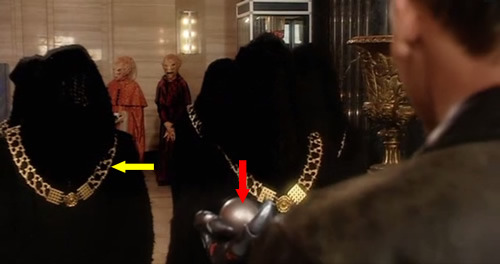
Ss and Zs both show up quite a bit. In fact, the Truth logo may very well represent stylized Ss or Zs. (Could be like the SS, a Nazi designation, which represents the Daleks.) The Z is important because it represents the last letter of our alphabet. However, the Greek equivalent is Omega, referring to River. Monks seem to show up when River or her metaphors are involved.
Anyway back to “The End of the World,” there is also a metal-looking, silver ball (red arrow) that the monk is holding out. However, when he offers it to the Doctor, his voice is very deep and sinister as he says, “A gift of peace in all good faith.” The sinister voice is a contradiction to the symbol. It turns out this episode is running backward. It means war. Monks show up and war breaks out.
What’s happening is that Earth (the Doctor) dies and war breaks out. The metal ball contains metal spiderbots that sabotage the observation platform. They are Trojan Horses hiding instruments of war.
BTW, the metal ball is referenced in THORS when River receives the money ball with a cross in the background, representing the 12th Doctor. It’s a symbol of war to save the Doctor.
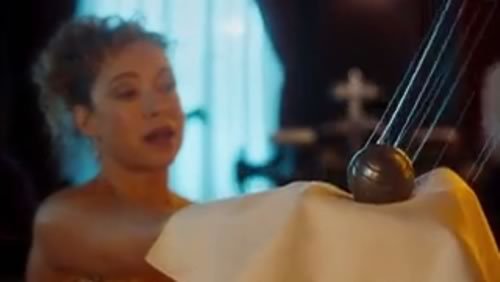
The grandfather concept also refers to the Trojan Horse. And in fact, in
my analysis of TPEW
, we looked at how little George, a metaphor for the Doctor, in “Night Terrors” was a cuckoo. Cuckoo birds lay their eggs in another bird’s nest, letting the young be raised by foster parents.
This all is saying the Doctor is a Trojan Horse. Being that Bill is the face of the Doctor, the 13th (Hartnell’s Doctor comes up over and over as the 13th Doctor), Bill can be the Trojan Horse, too. Anyone of the Doctor’s faces can be.
A Trojan horse can also refer to a malicious computer program, which tricks users into willingly running it, so here’s a connection to a computer virus.
Star Trek Connections
There are quite a few connections to Star Trek that I’ve noticed since realizing how the series is being used in DW. Three episodes may have a bearing on things we examined in this chapter. TOS stands for The Original Series of Star Trek. TNG refers to Star Trek: The Next Generation.
The Sisterhood of Karn & TOS: “Errand of Mercy”
I mentioned that the Sisterhood of Karn looked like they lived in Medieval times in “The Brain of Morbius.”
Interestingly, there is a TOS episode called “Errand of Mercy,” where Kirk and Spock try to protect the planet Organia from the Klingons (a hostile humanoid species), but the natives don't want the Federation's help.
SPOCK: Captain, our information on these people and their culture was not correct. This is not a primitive society making progress toward mechanisation. They are totally stagnant. There is no evidence of any progress as far back as my tricorder can register. KIRK: That doesn't seem likely. SPOCK: Nevertheless, it is true. For tens of thousands of years, there has been absolutely no advancement, no significant change in their physical environment. This is a laboratory specimen of an arrested culture.
However, at the end, we learn that things are not as they appear. Ayelborne is a native to Organia while Kor is a Klingon, who seems much like Davros. The Organians, who are a peaceful people, put a stop to any war between the humans and the Klingons:
AYELBORNE: Yes, please leave us. The mere presence of beings like yourselves is intensely painful to us.
KIRK: What do you mean, beings like yourselves?
AYELBORNE: Millions of years ago, Captain, we were humanoid like yourselves, but we have developed beyond the need of physical bodies. That of us which you see is mere appearance for your sake.
KOR: Captain, it's a trick. We can handle them. I have an army.
(Kirk holds him back as Ayelborne and Claymare transform into pulsating lights, too bright to look at. Then they disappear.)
SPOCK: Fascinating. Pure energy. Pure thought. Totally incorporeal. Not life as we know it at all.
KIRK: But what about this planet? The fields, the buildings, this citadel?
SPOCK: Conventionalisations, I should say. Useless to the Organians. Created so that visitors such as ourselves, could have conventional points of reference.
KOR: But is all of this possible?
SPOCK: We have seen it with our own eyes. I should say the Organians are as far above us on the evolutionary scale as we are above the amoeba.
So the Organians are really highly advanced and incorporeal. If the Time Lords are billions of years old, I would expect them to be incorporeal, too. And its “Errand of Mercy” that gave me this idea long before Rassilon said he wanted the Time Lords to become beings of pure thought.
Do the Sisterhood of Karn live in primitive-looking conditions because they aren’t who we think they are?
Matter, Antimatter & TOS: “The Alternative Factor”
Since the whole idea of antimatter comes up with CERN and Dan Brown’s novel Angels and Demons, it seems appropriate to look at something that might give us some clues about what is happening with the Doctor.
Interestingly, in the TOS episode “The Alternative Factor” everything within sensor range suddenly "blinks," almost as if the universe is on the verge of annihilation. A time traveller suddenly appears on the planet below.
We find out later that there are actually 2 versions of this time traveller, whose name is Lazarus. One version has a cut on his forehead while the other doesn’t. I did actually think of this TOS episode when in “Extremis” the Doctor cuts his forehead over his eyebrow before I realized the antimatter connection. That should have tipped me off about Star Trek – earlier than I actually realized it.
One Lazarus is in the antimatter universe, and the other is in the matter universe.
KIRK: Exactly what did I pass through?
LAZARUS: That's hard to explain, Captain. I call it an alternative warp. It's sort of a negative magnetic corridor where the two parallel universes meet. It's sort of a safety valve. It keeps eternity from blowing up.
KIRK: This corridor, is it what caused the magnetic effect, the winking out phenomenon?
LAZARUS: Precisely, Captain, but not because of its existence. Because, because my foe entered. The corridor is like a prison, with explosives at the door. Open the door, and the explosives might go off. Stay inside
KIRK: And the universe is safe.
LAZARUS: Both universes, Captain. Yours and mine.
The interesting thing about this is the prison concept in TOS and how it might compare to what happened in “The Lie of the Land.” Letting out the possessed Doctor from the prison puts the universe at risk, actually both universes, which is what happened in "Turn Left." OK, that’s not how we saw it happen in the episode, but that’s the implication in this simulation. It’s like we have matter and antimatter Doctors.
In Christian terms, it’s like Christ vs. the Antichrist. Here we are back at one of the 4 Horsemen of the Apocalypse. Missy even mentions a pony, which might be both a reference to a rescue plan and the apocalypse. Maybe it also is a reference to the Trojan Horse.
BTW, I have a big problem with the supply and prison ship scenes. How exactly is the Doctor a prisoner on the ship? Nobody seems to be watching him. He just walks out of the ship. Before this, Bill and Nardole just walk into the Doctor’s room. Where is the break-in if the Doctor is a prisoner? If Bill is so important, why aren’t the Monks keeping her prisoner? On the supply ship during the Monk’s visit, why didn’t the Monk capture Bill? The Monk’s timing just so happened to coincide with Richard’s request for identification papers. This whole supply and prison ship set of events just screams problems, so we know things aren’t happening the way we think. And then, of course, we saw the image above from the ship that shows “Conning Station.” It’s all a con.
“The God Complex” & TNG: “Hide and Q”
The TNG episode “Hide and Q” may give us a clue about Missy’s plan, which ties into the idea of a God Complex. The Q, are god-like beings who live in the Q Continuum. Typically, when Q is referenced, it refers to one particular being in general. He is a trickster and Loki-like in DW terms. He showed up once before this episode. However, in “Hide and Q,” he returns to the Starship Enterprise to test First Officer Riker by giving him the power of a Q.
Q transports the bridge crew, minus Captain Picard to a planet, where we a setting from the Napoleonic era. Q, himself, is dressed in a Napeoleonic costume, shown below. He tells the crew the point is to stay alive in his game. Check out the symbology used in this TNG episode: a Roman cross and fleur-de-lis. If this were DW, we could translate this as: the Doctor and Nardole are Q.
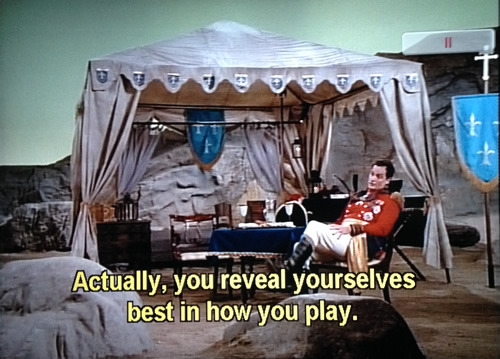
The other Napoleonic soldiers seem like they would be easy to overcome. It seems like a ridiculous setup until a soldier turns around, and he isn’t human. In fact, while their weapons look authentic, they are energy weapons. I’m betting something similarly ridiculous will happen in DW.
Q reappears on the Enterprise bridge, explaining to Picard that the real intent of his game is to test whether Riker is worthy of the greatest gift the Q can offer. Memory Alpha says
They make a bet: Picard's command against Q's keeping out of Humanity's path forever. Q then promptly tells Picard that he has already lost as Riker will be offered something impossible to refuse.
Back on the planet Q talks to Riker about the powers granted to him, but Riker doesn’t want them. However, Q creates a situation where the other soldiers kill a couple of crewmembers, and only Riker’s newly acquired powers can save them. Riker holds back the alien soldiers with a force field, transports the crew back to the ship, and heals everyone.
Riker promises Picard not to use the powers again, but another situation comes up where a child on a planet dies. Riker is bound by the promise but calls a meeting. While he says he’s not a monster, clearly his relationship with people has changed. In fact, he calls the Captain by his first name, which Riker never does in normal situations. He doubts his decision not to save the child, but Picard says it was a fiction created by Q.
Riker ends up having a God Complex.
When he tries to give each bridge member a gift, like sight for the blind character, none of the crew want the gifts. Riker realizes he shouldn’t have the power.
Interestingly, at the end, Data, a sentient android, says something interesting that certainly can relate to the 12th Doctor, at times:
DATA: Sir, how is it that the Q can handle time and space so well, and us so badly?
PICARD: Perhaps some day we will discover that space and time are simpler than the human equation.
What if Missy is the one who wants the Doctor to use his powers that he promised not to use? I can see her creating a situation like Q, where someone that the Doctor loves is killed or seriously wounded to get him to break his promises. Sure, we’ve already seen him break promises, but this would be in a much more dramatic way.
In fact, in a way, this already happened with Bill in “Oxygen,” but we really didn’t see what happened between the Doctor and Bill and whatever methods he used to save her. This didn’t have the emotional impact that something like this should have.
It’s not because I saw it coming.
Instead, it’s because I didn’t see what actually happened. (I can watch TV shows or movies over and over and still feel the emotional impact that I did in the first watch.) I didn’t experience the emotions of watching them struggle with trying to survive.
The only part we got to see and feel was Bill’s terror of what would happen to her. That’s significant! That’s what I’m referring to, and we got to see so little of it. Typically, when this type of thing happens with lots of hand waving, it’s foreshadowing for what is to come.
So this suggests to me that something horrible will probably happen to someone very close to the Doctor, and we will get to experience all the terror with it.
The Doctor, like Riker, is caught in a God Complex.
#doctor who#twelfth doctor#bill potts#river song#clara oswald#eleventh doctor#the lie of the land#amy pond#rory williams#tenth doctor#nineth doctor#eighth doctor#seventh doctor#sixth doctor#fifth doctor#fourth doctor#third doctor#second doctor#first doctor#rose tyler#martha jones#donna noble#sarah jane smith#ace mcshane#meta#analysis
3 notes
·
View notes